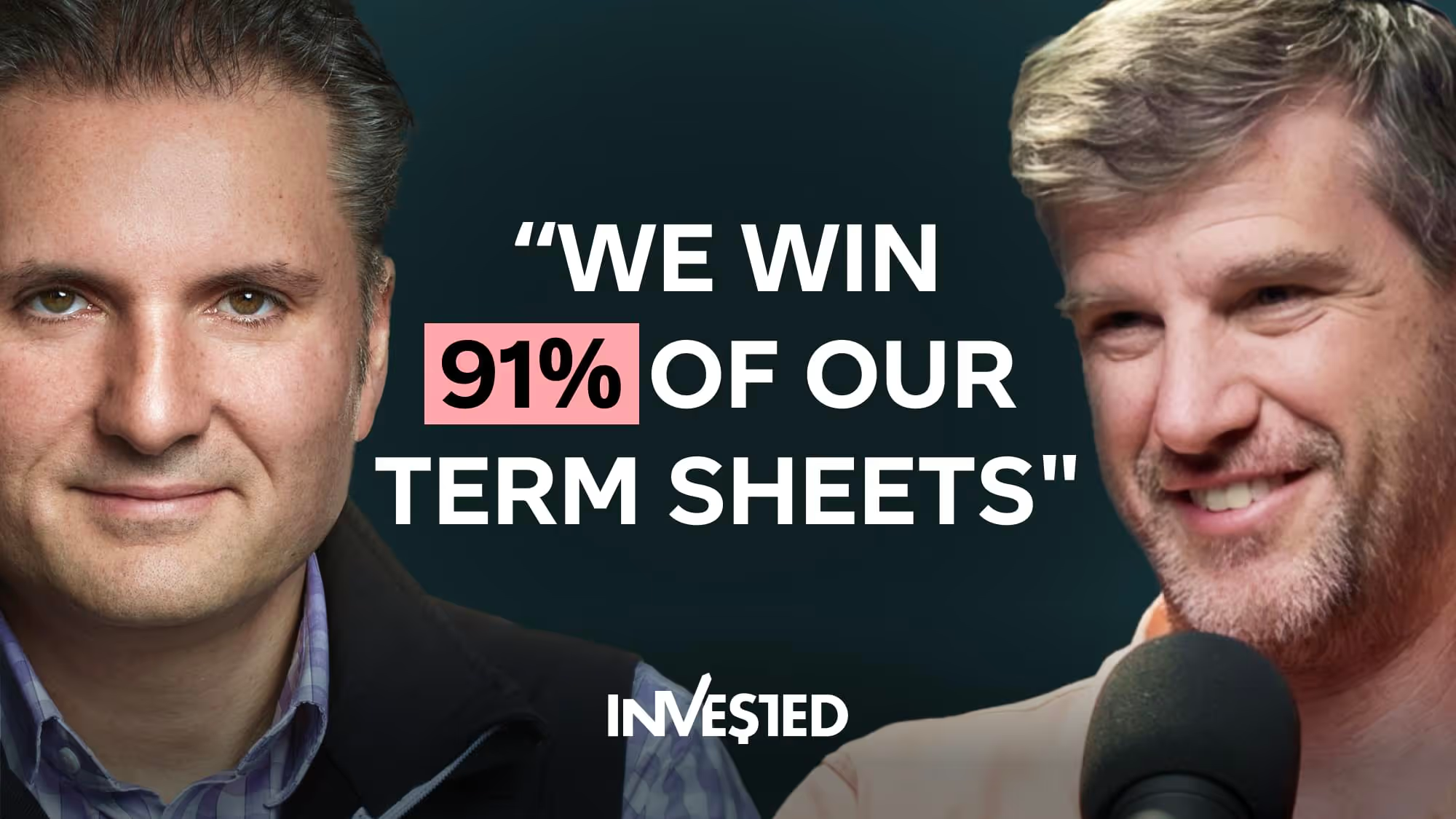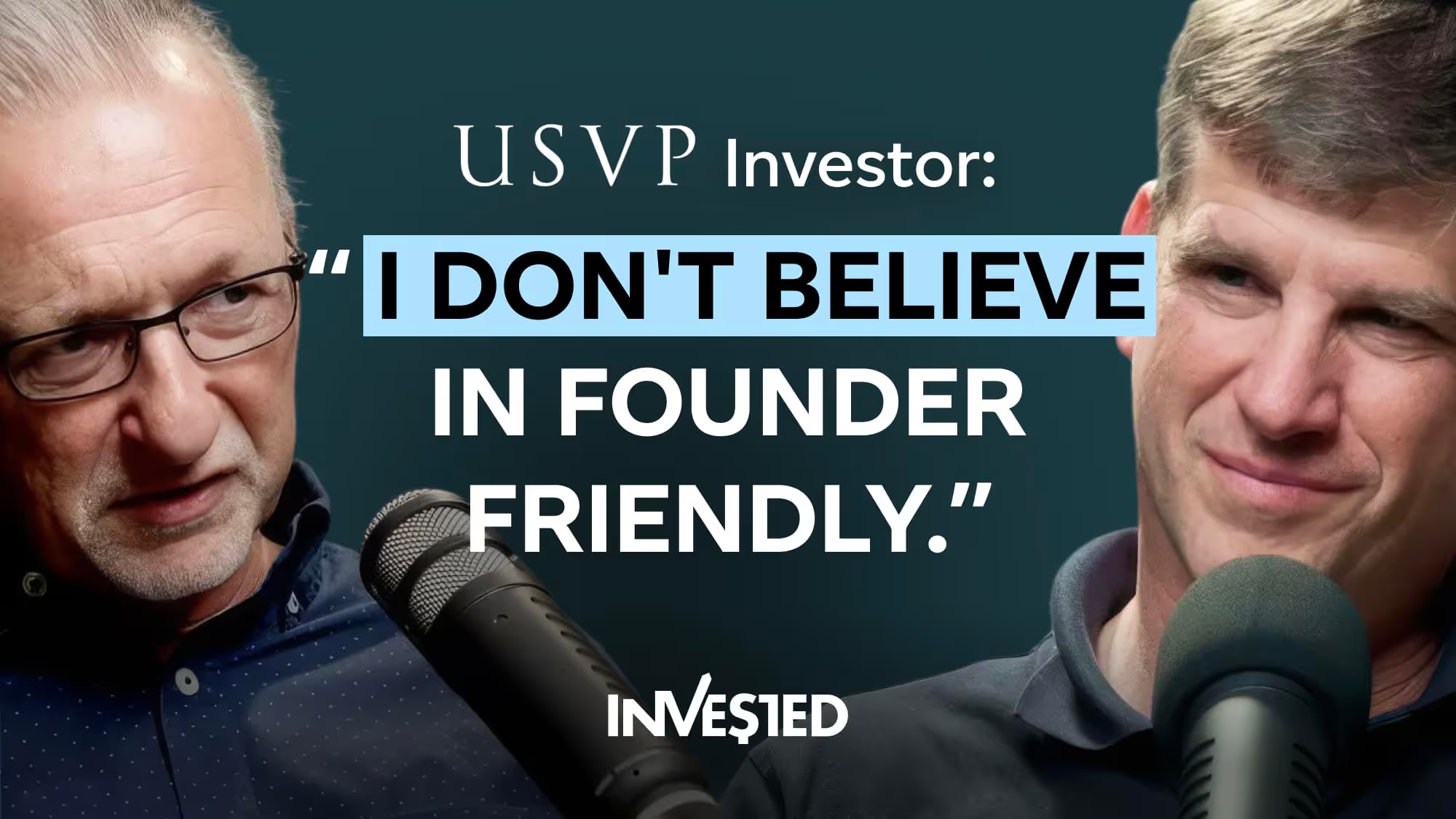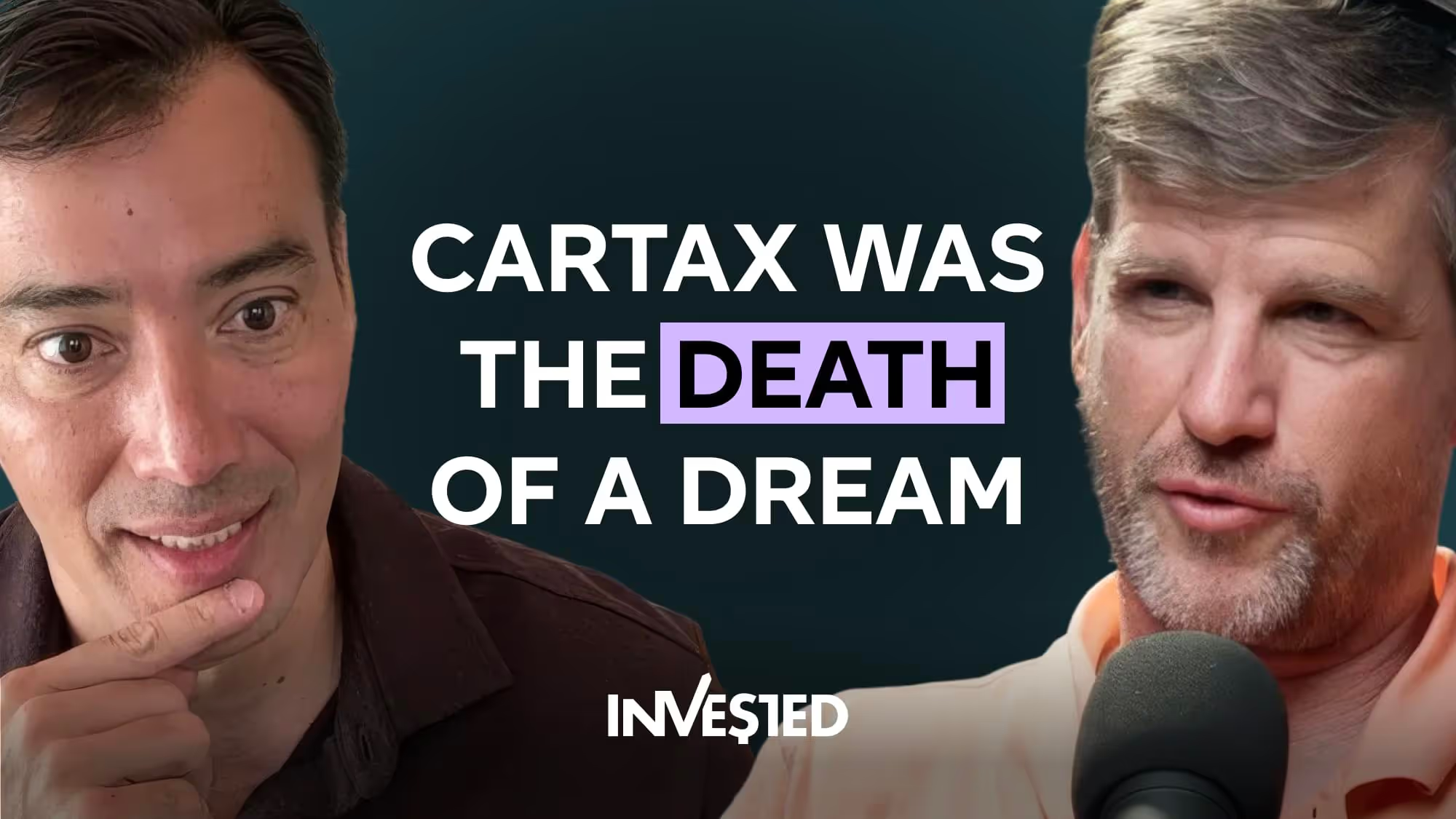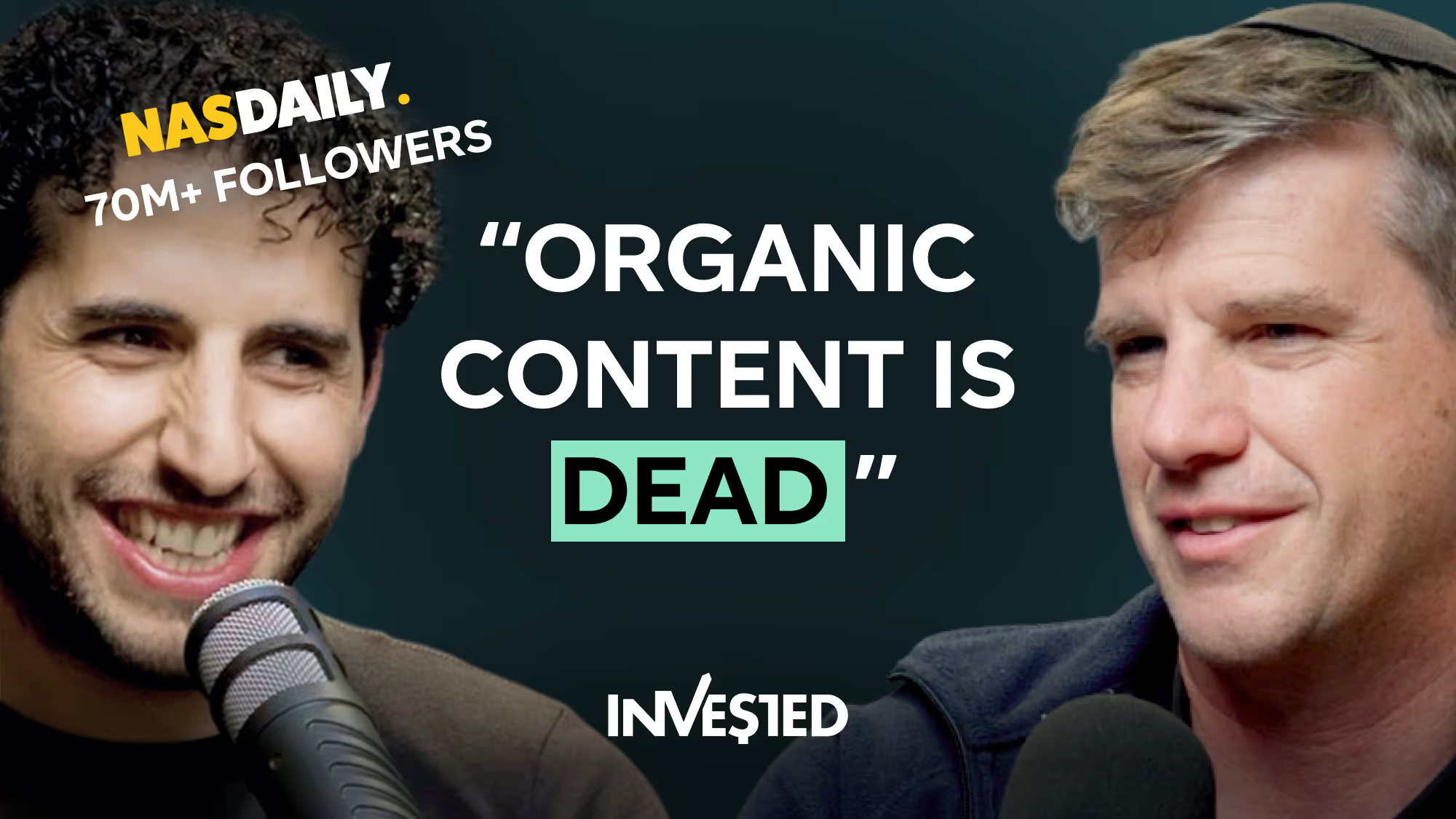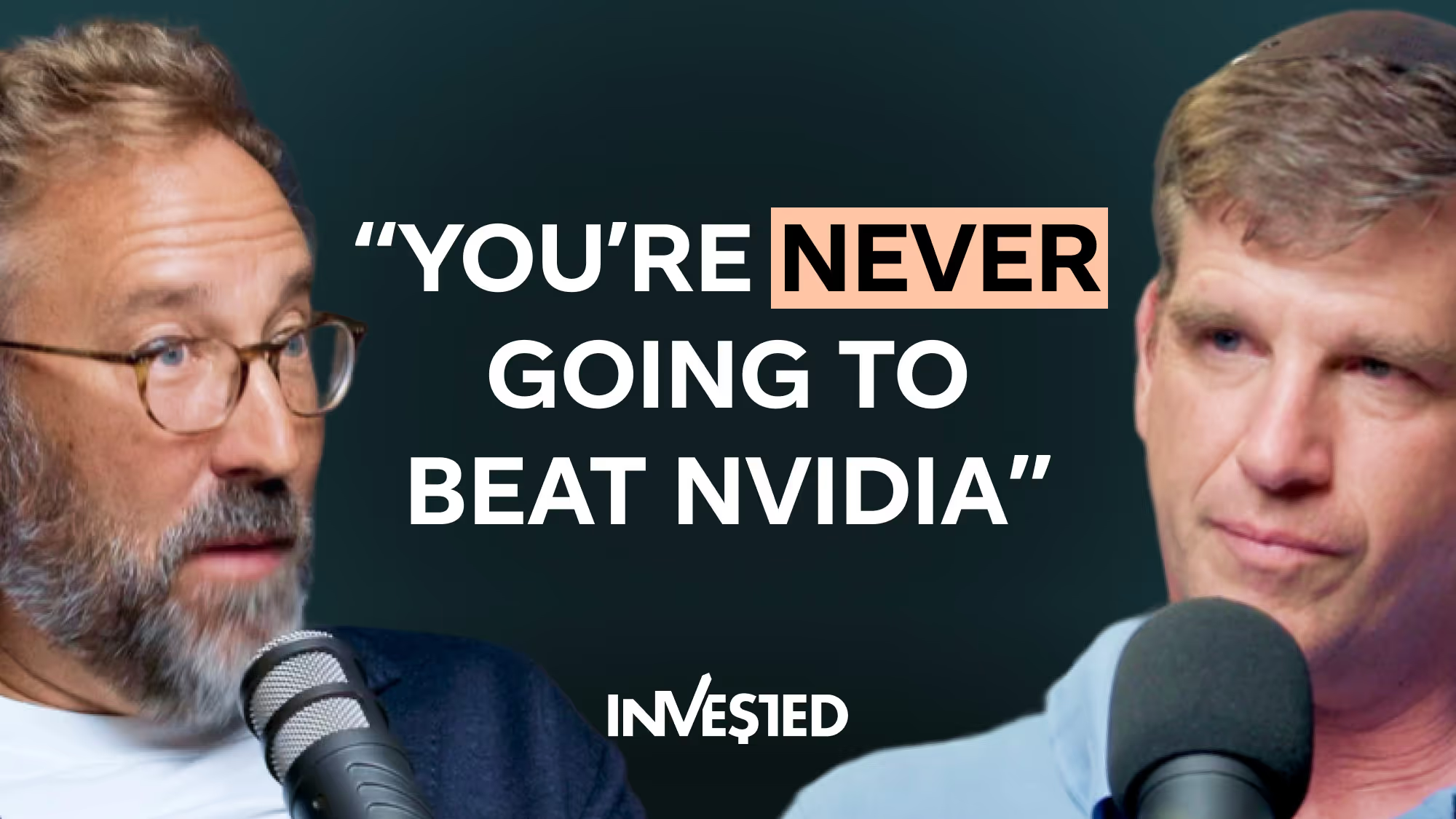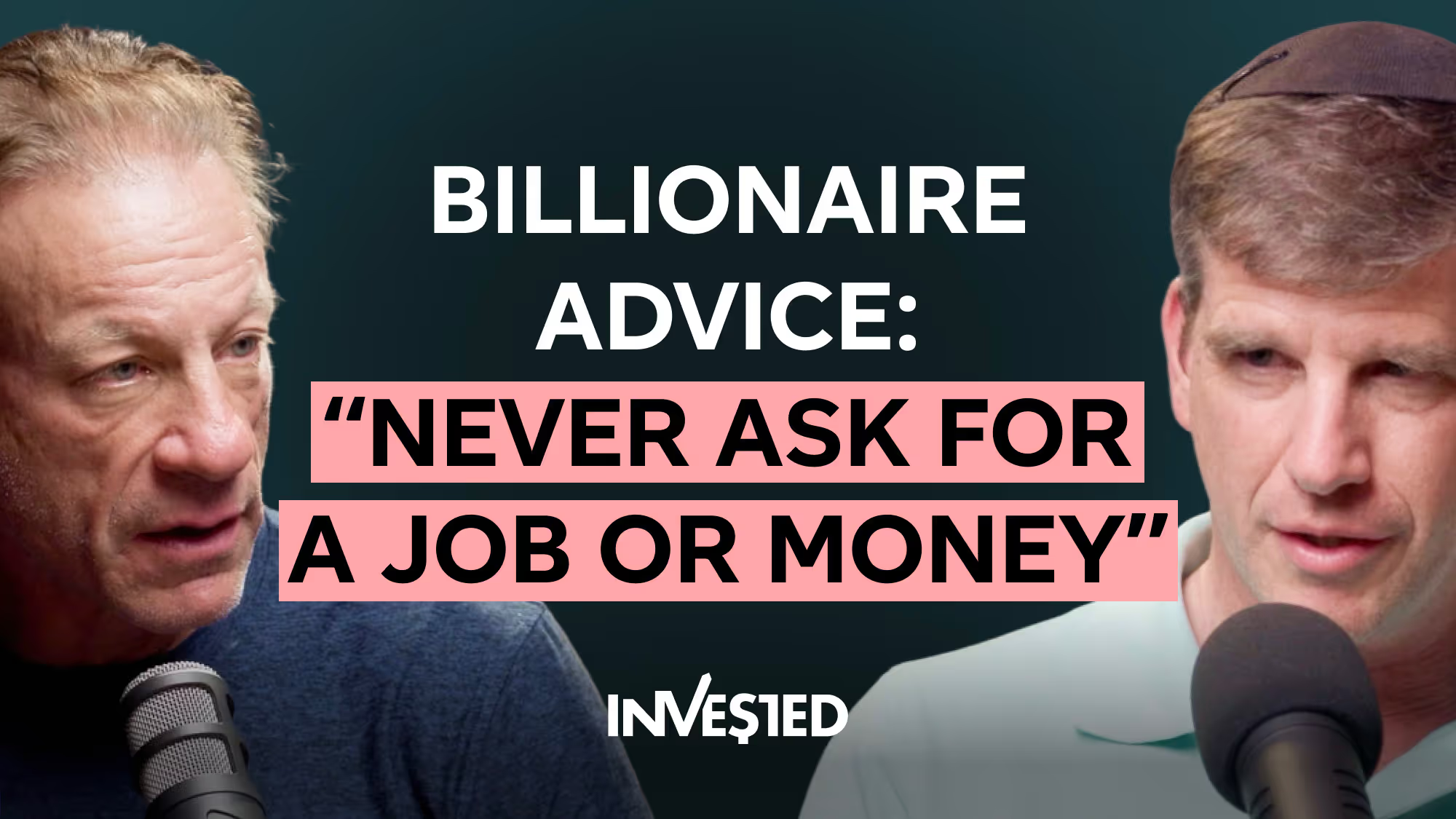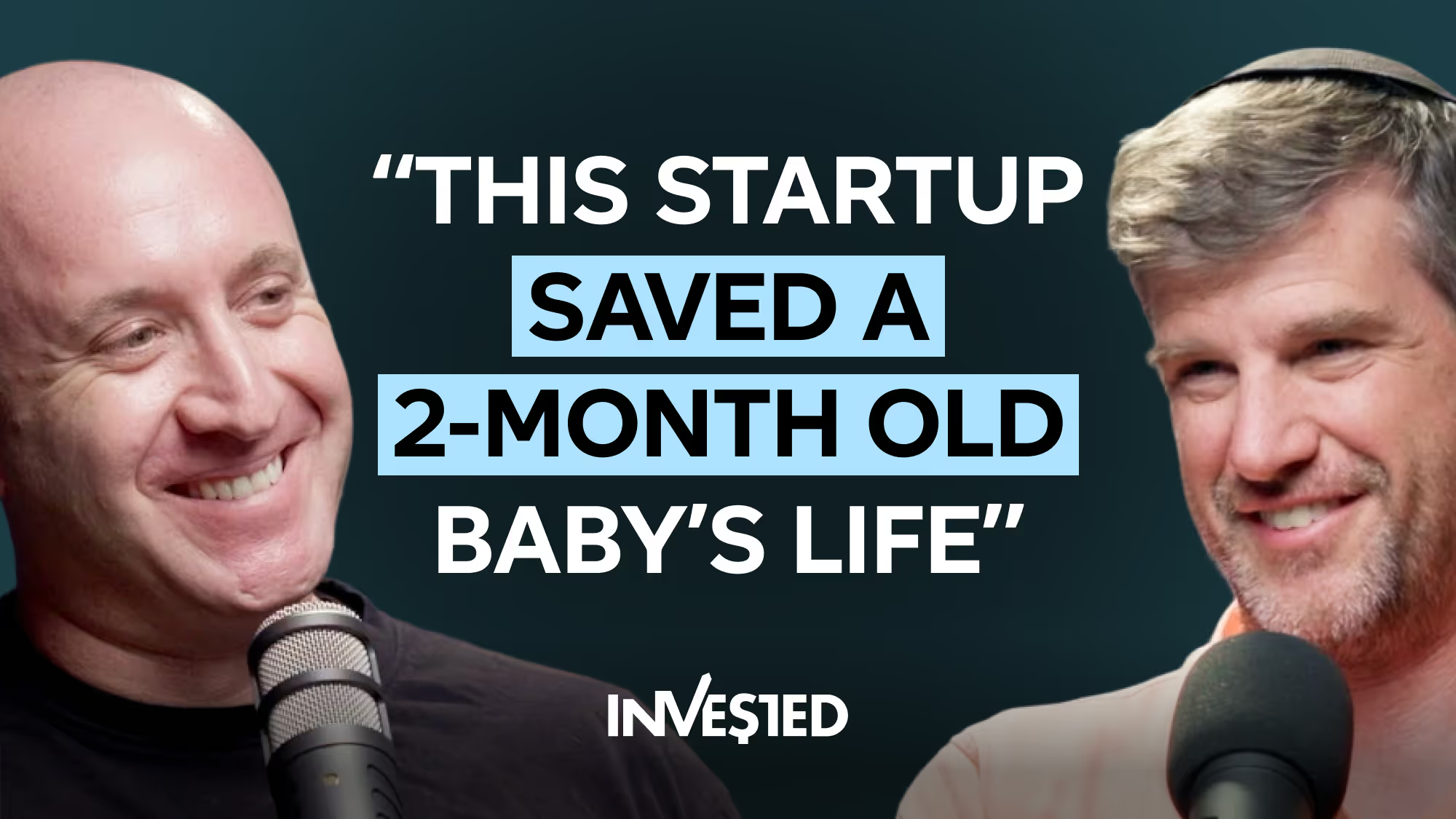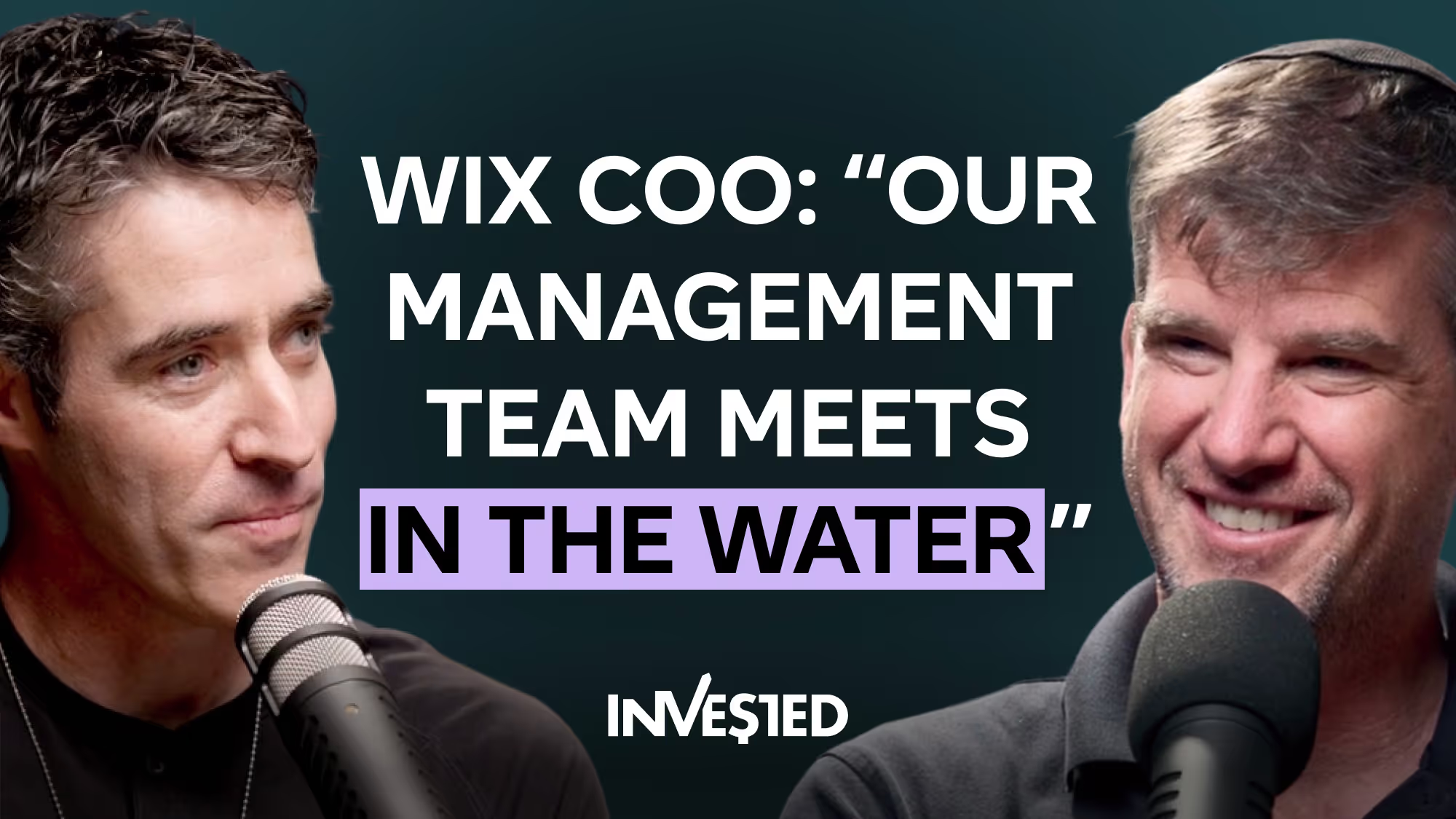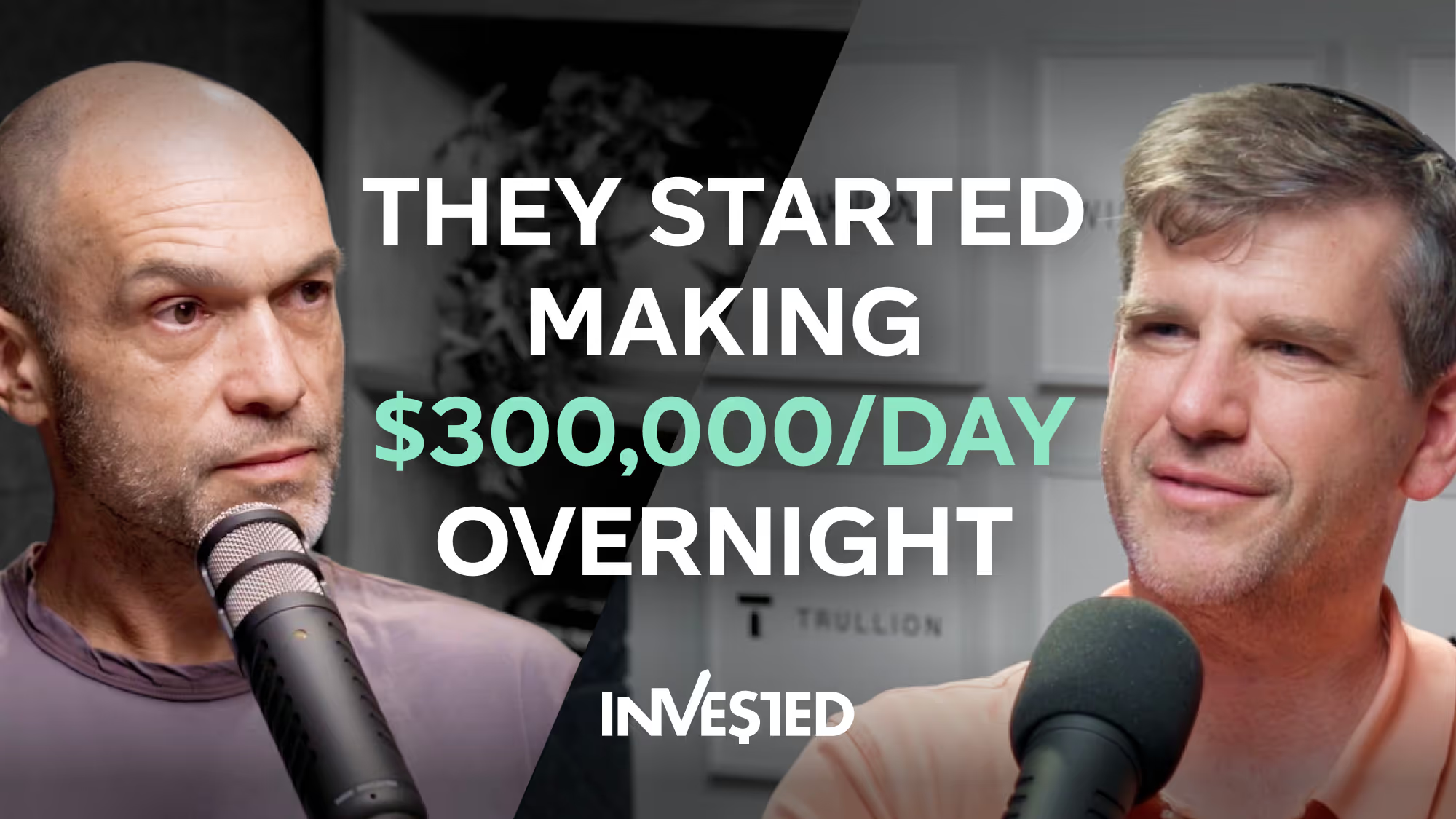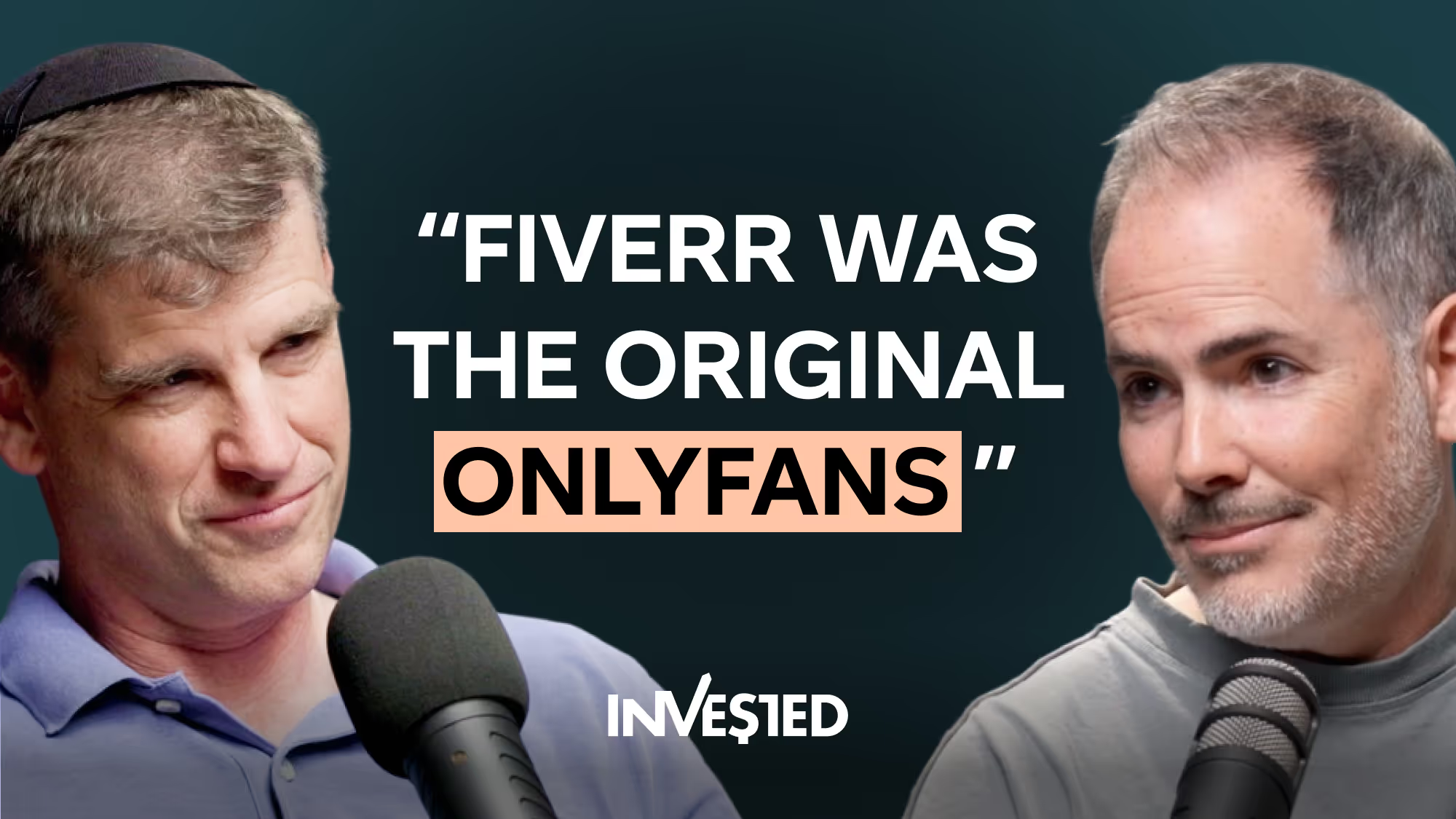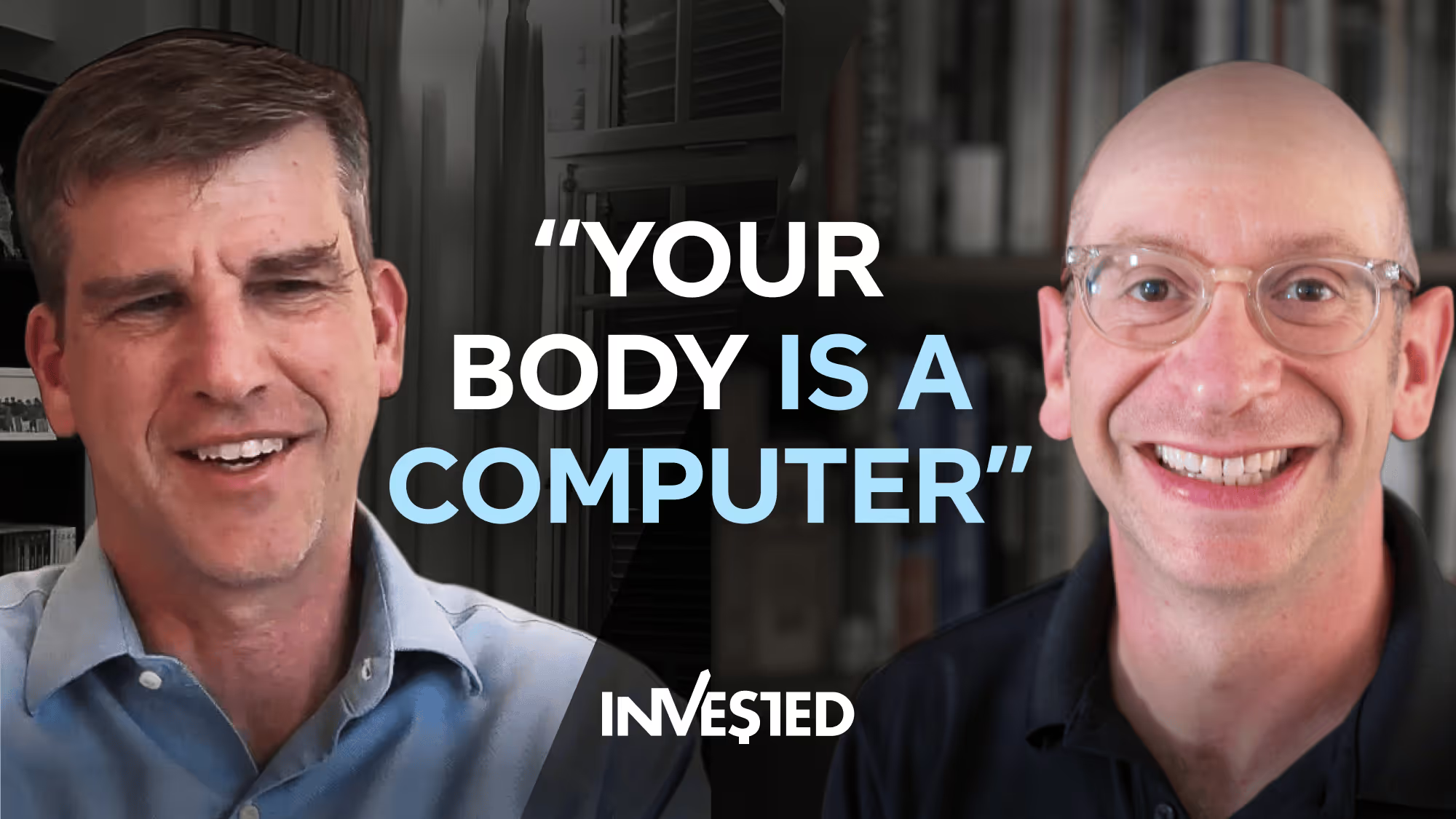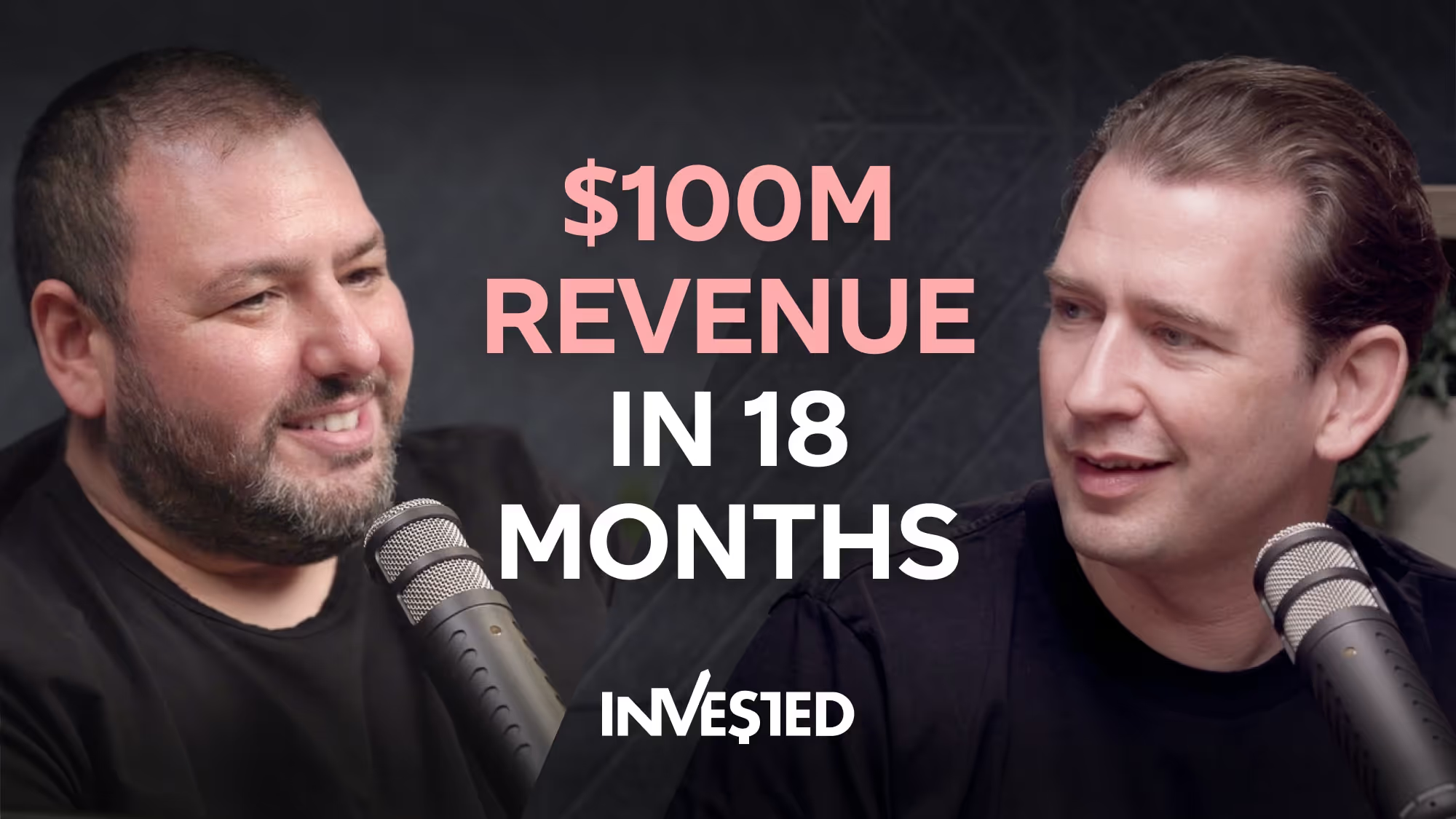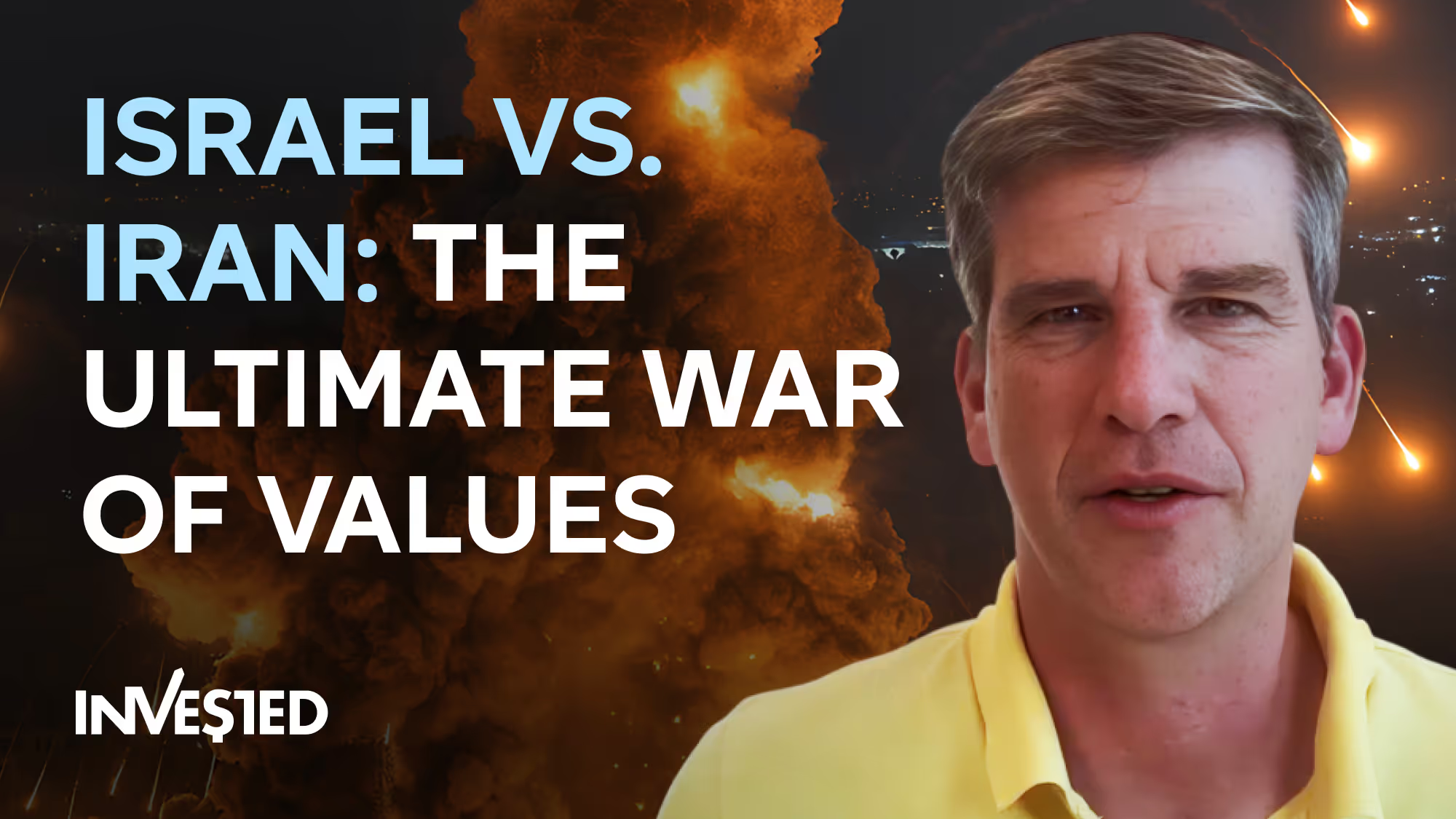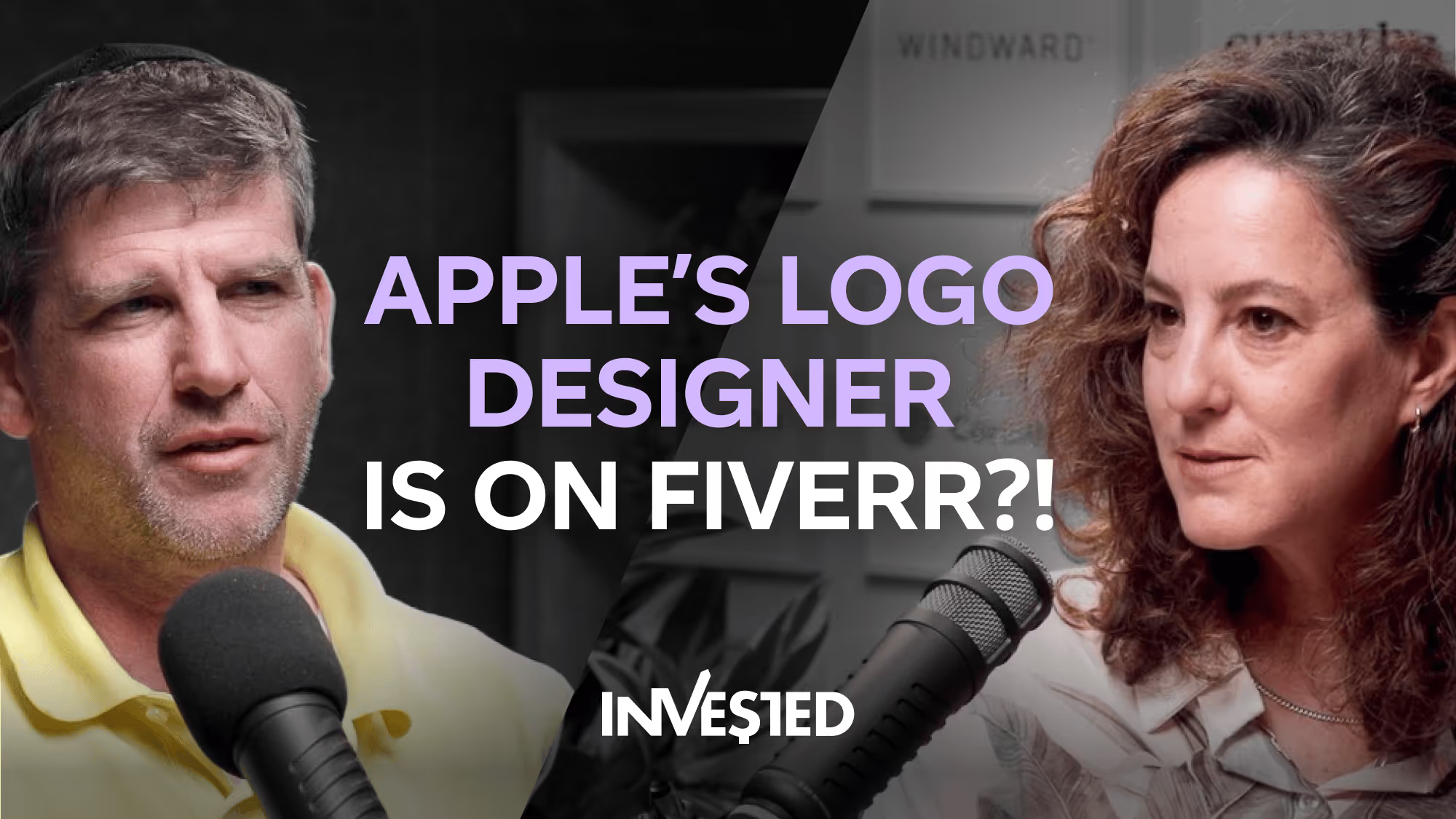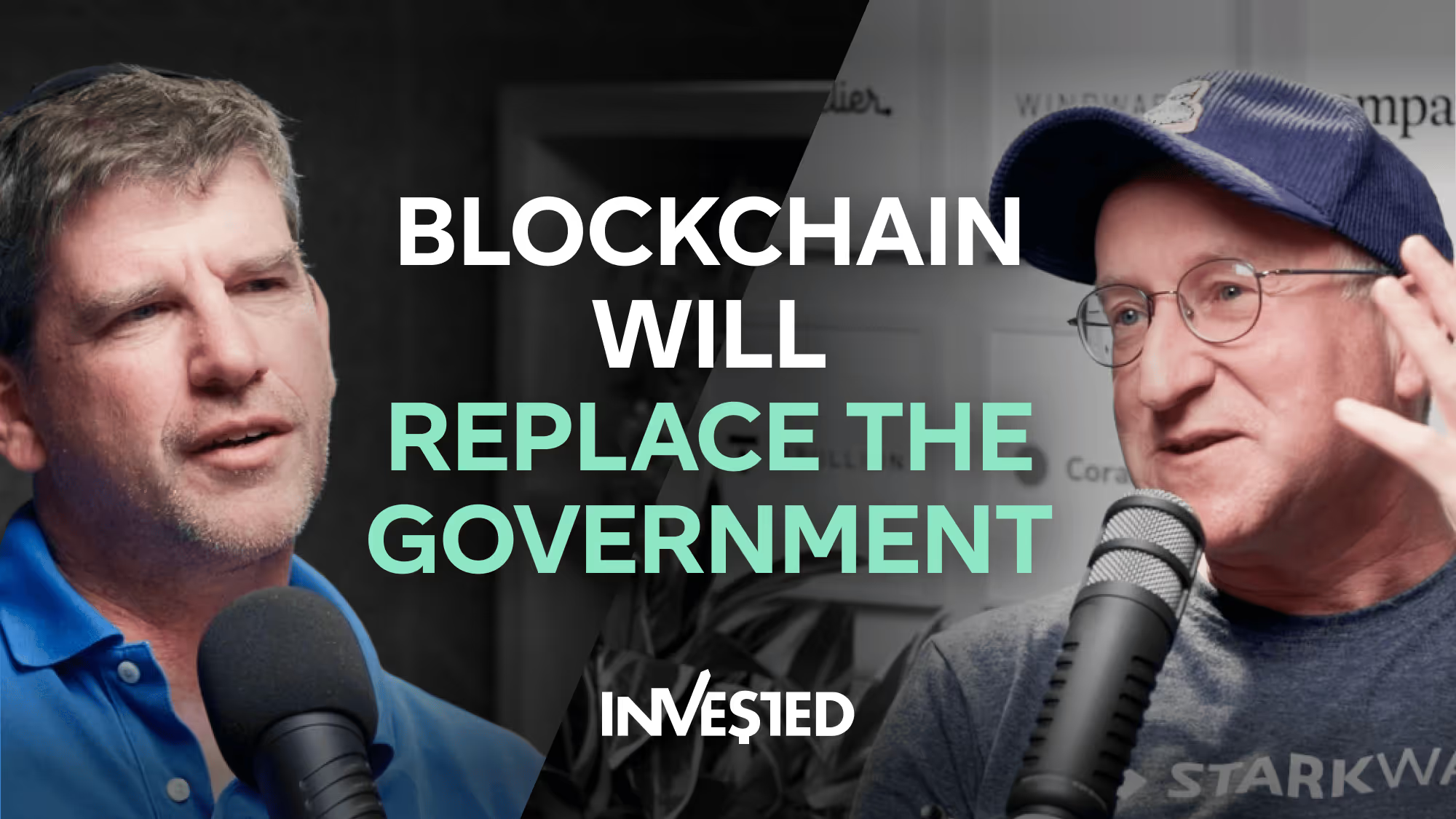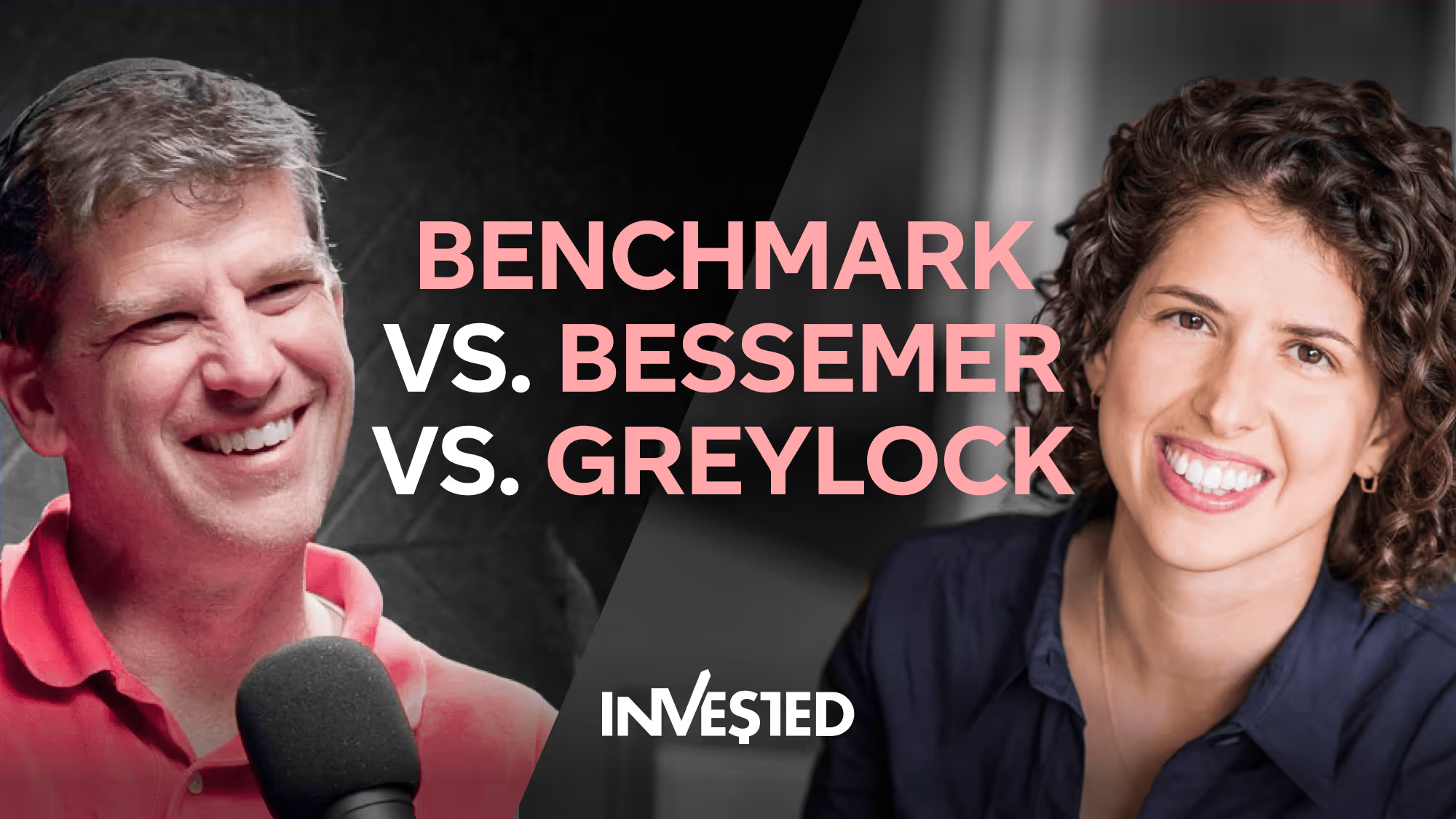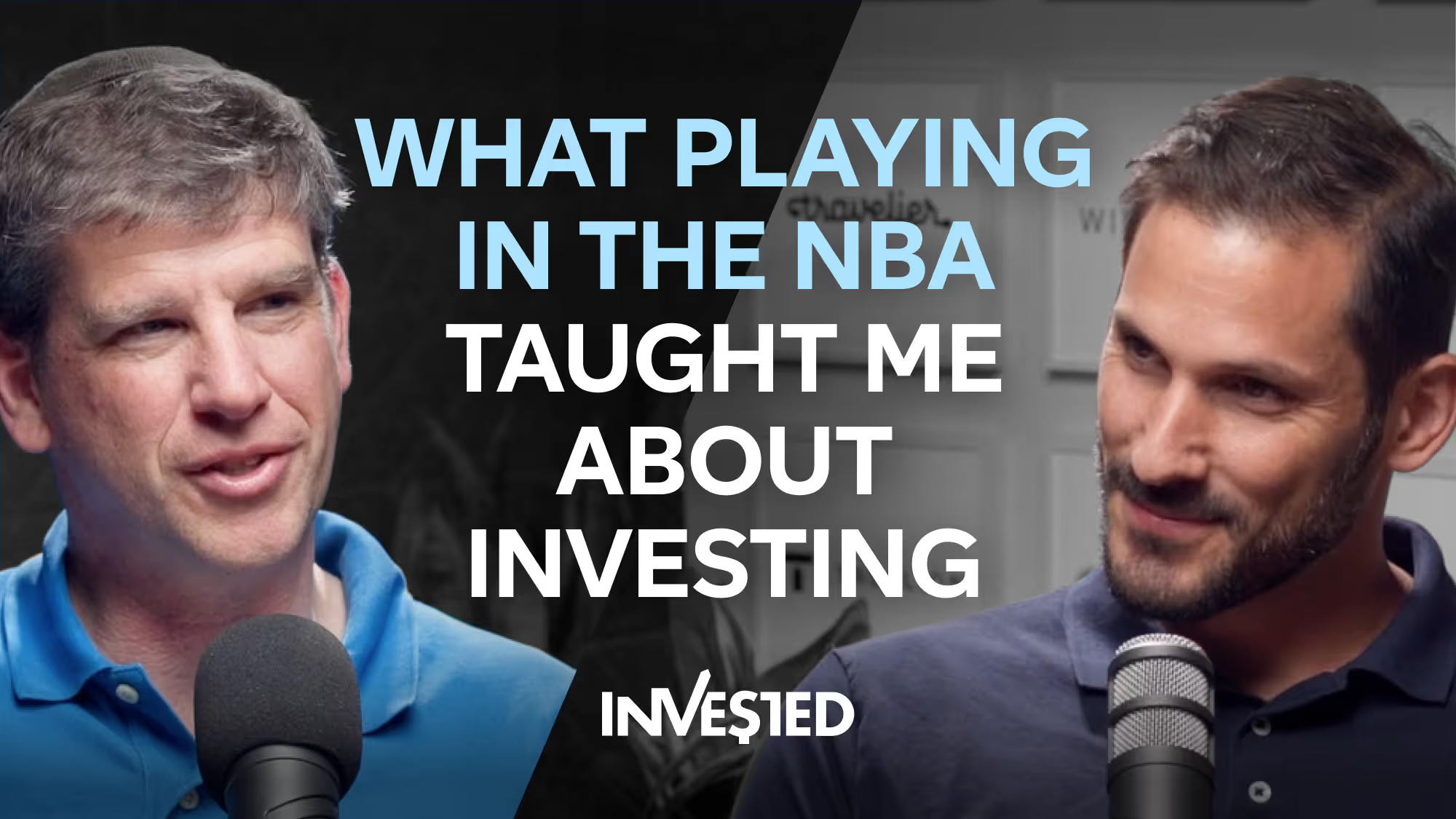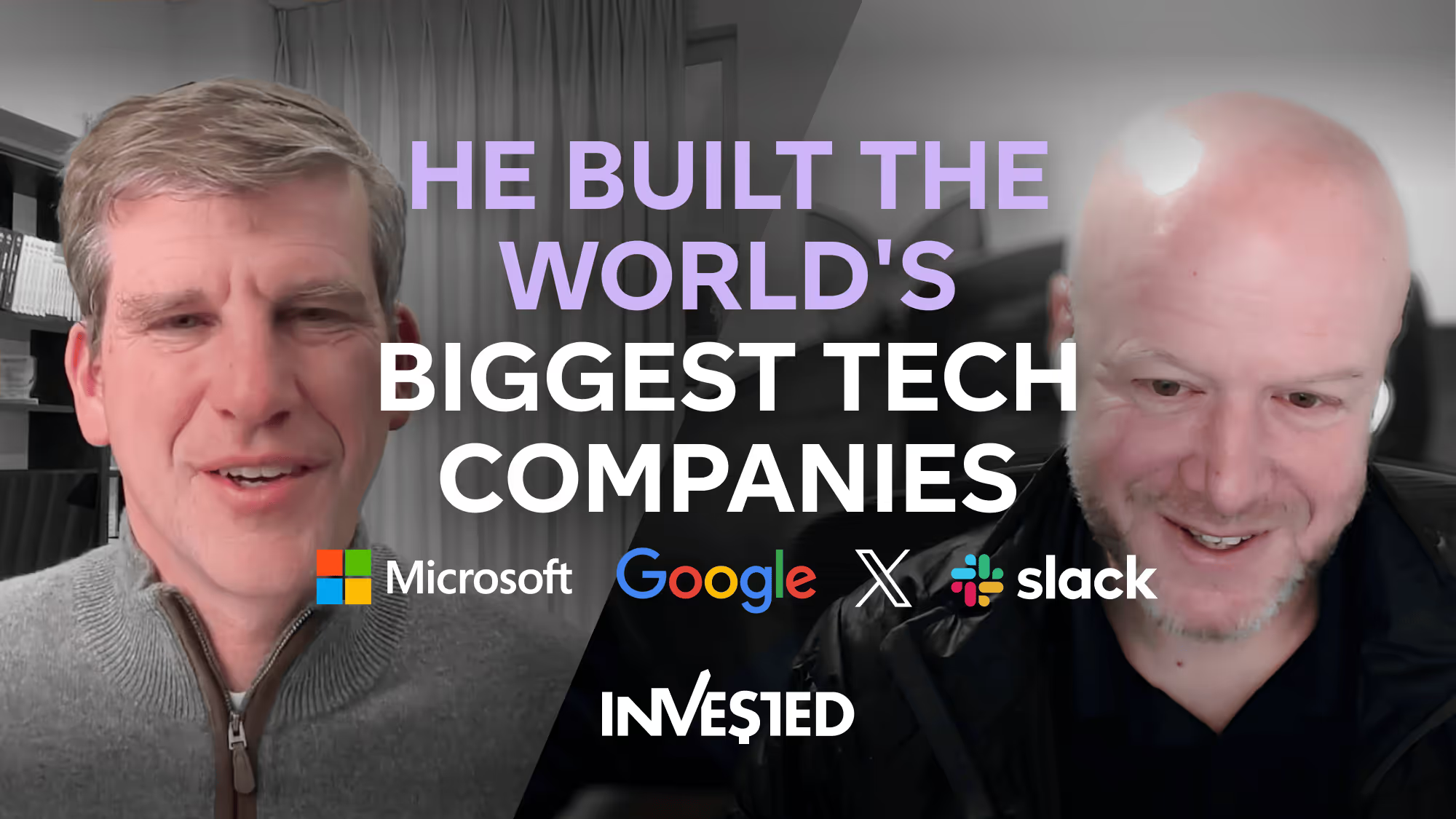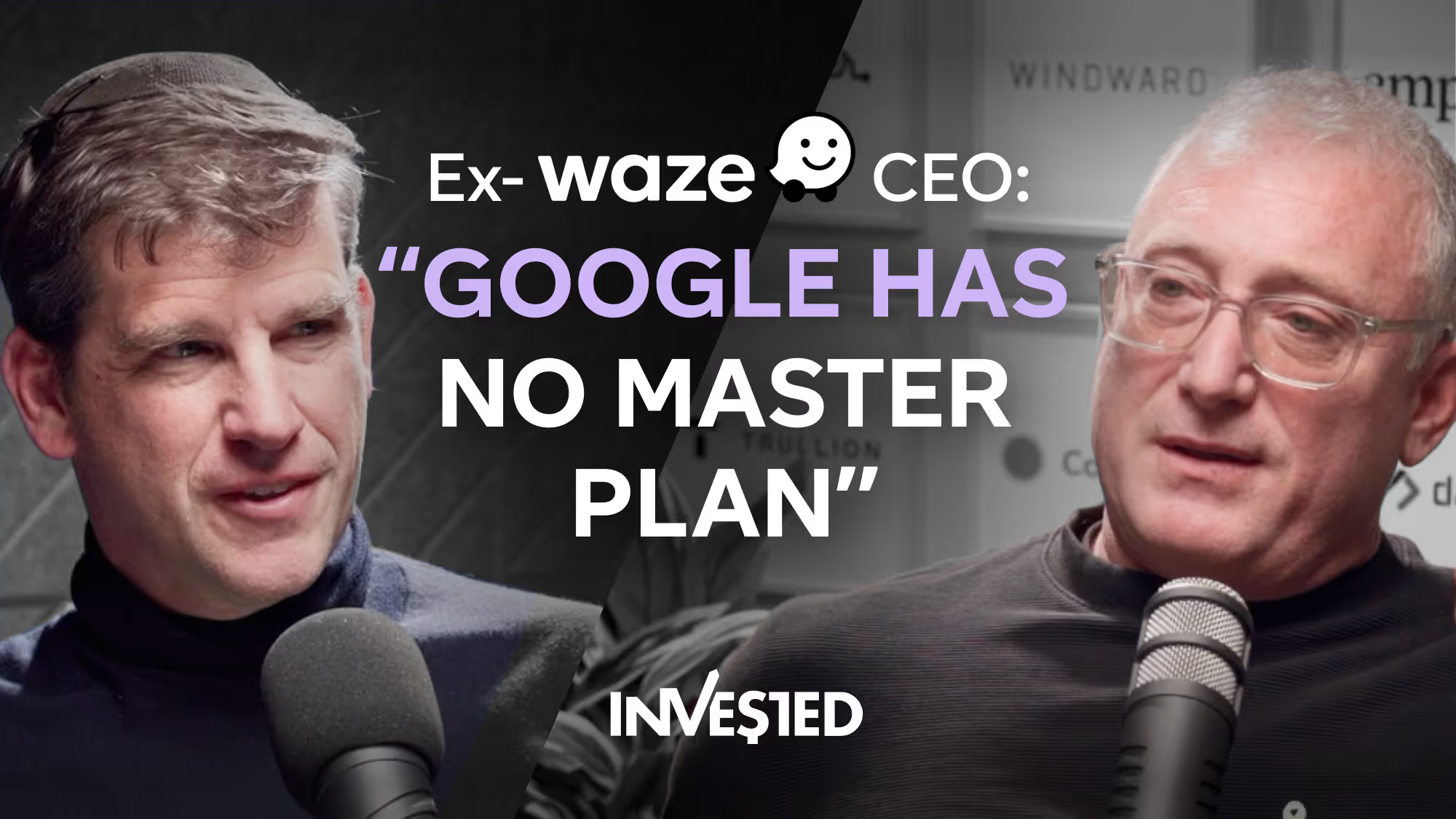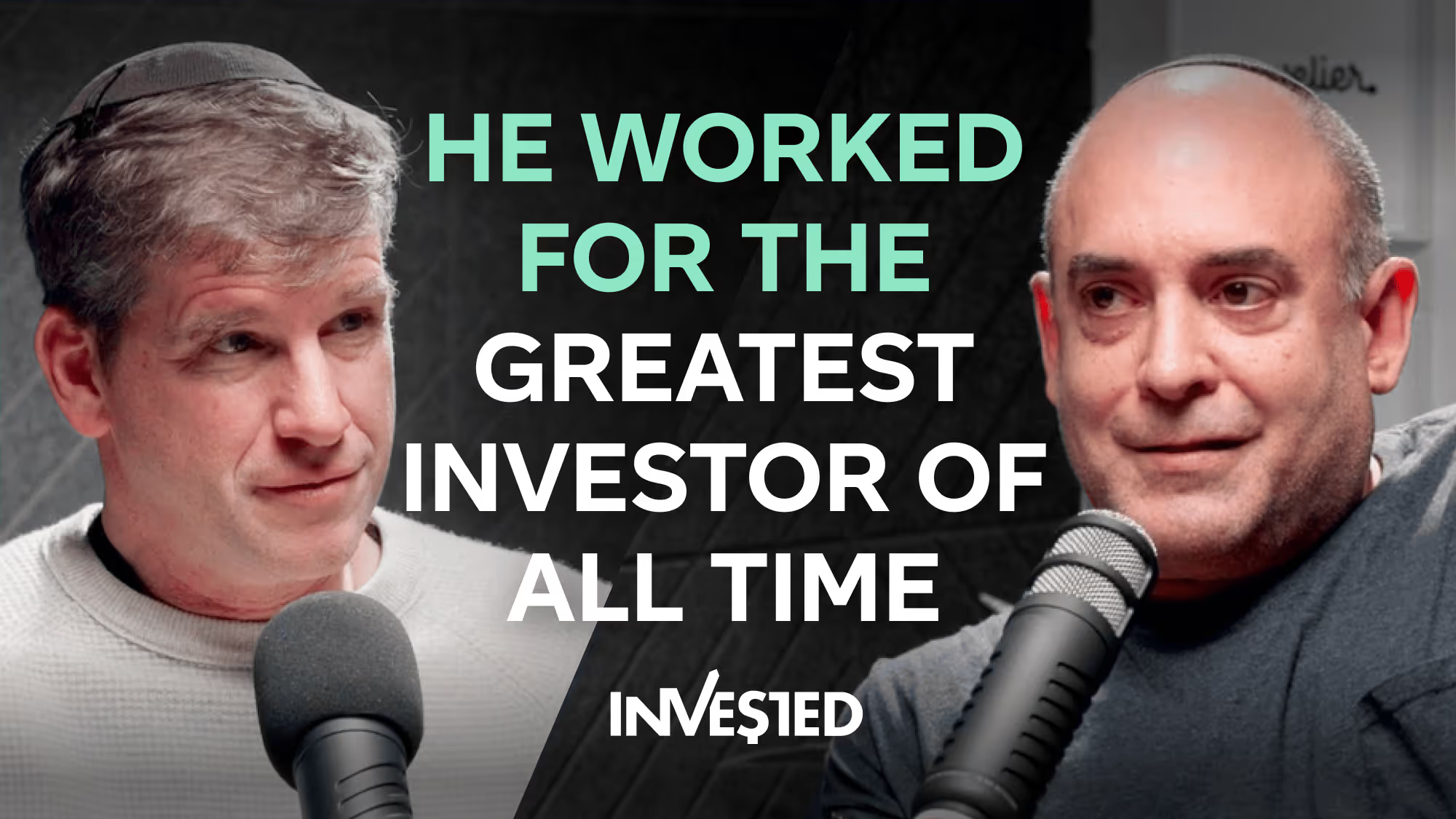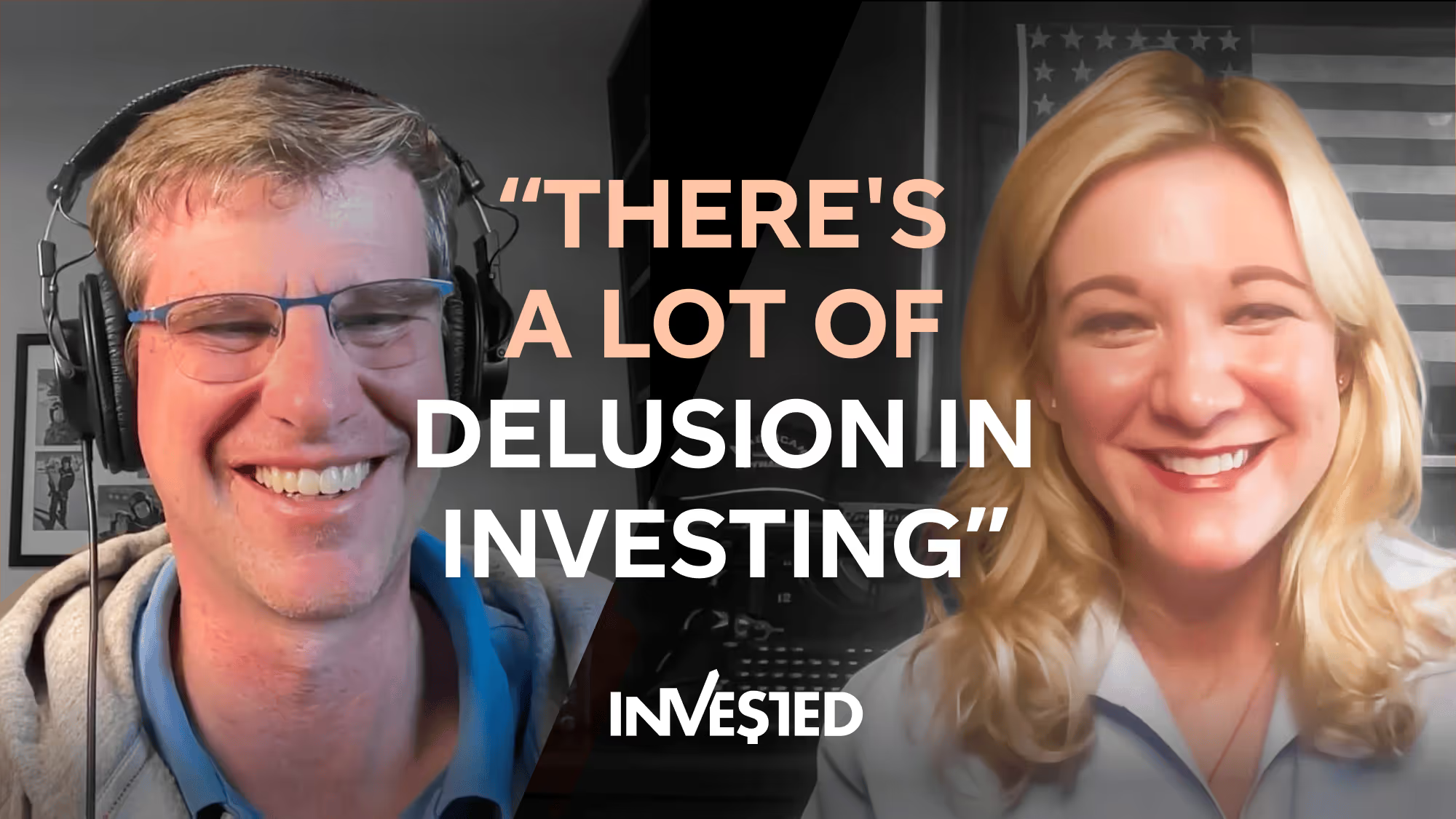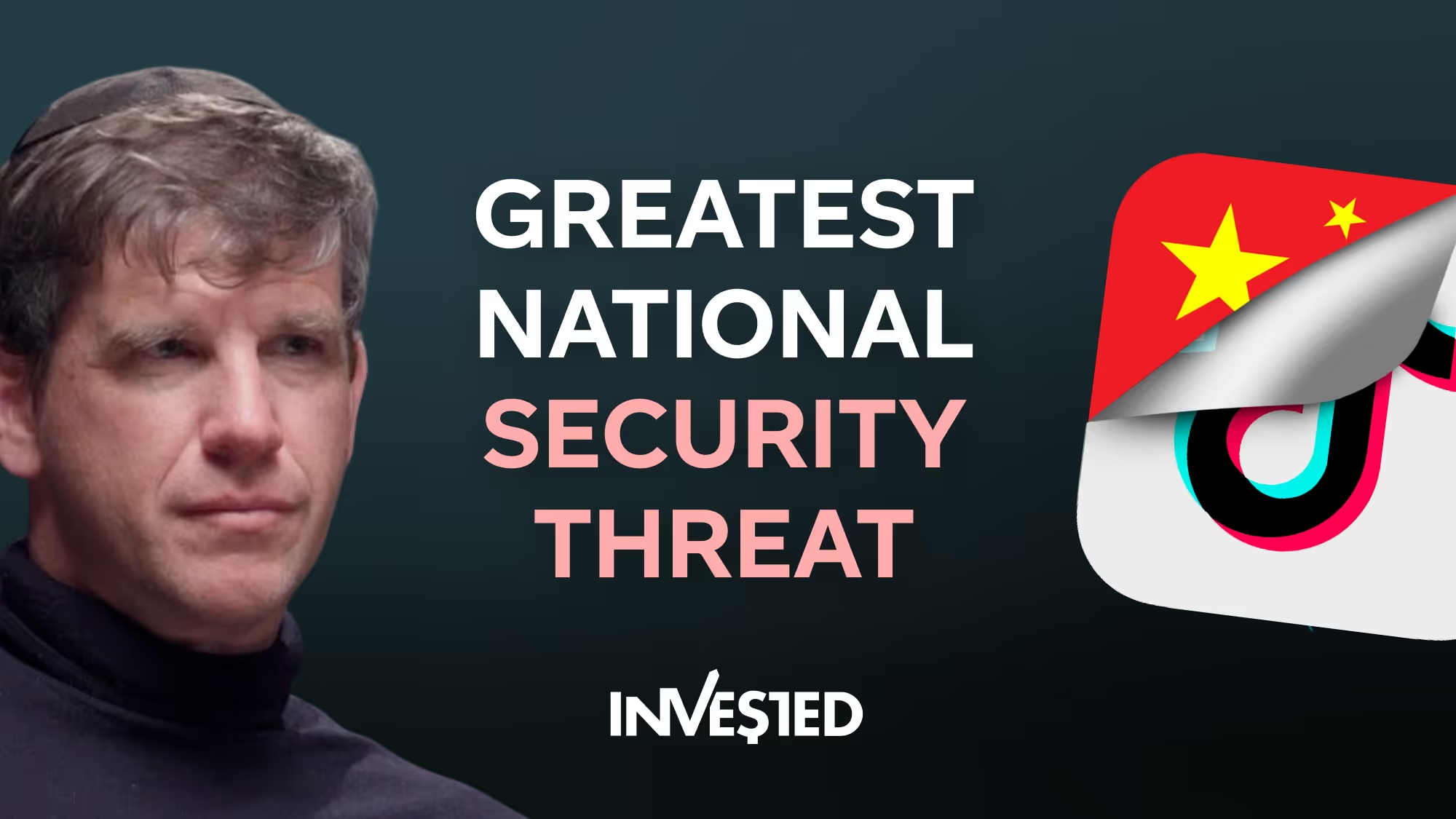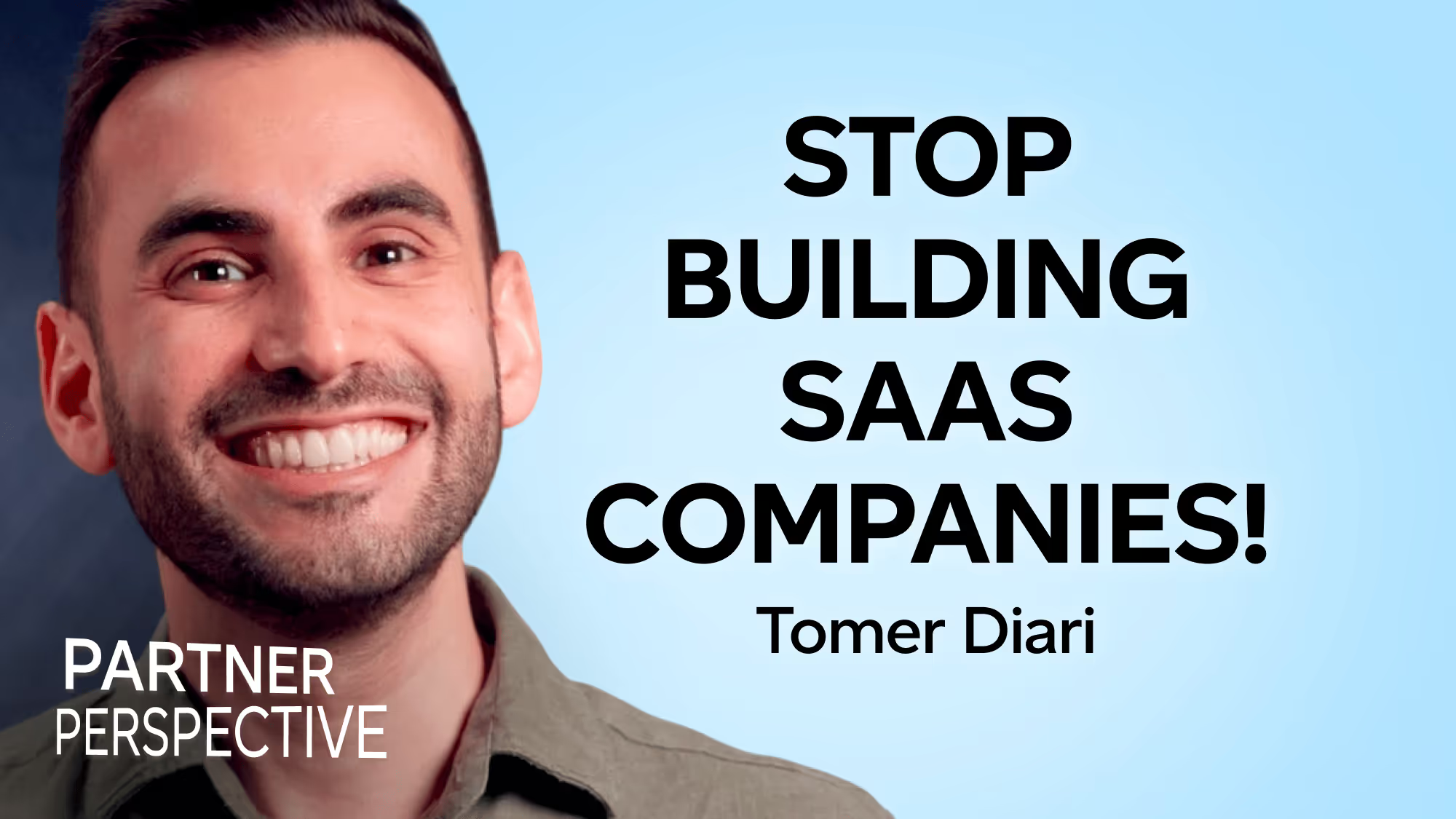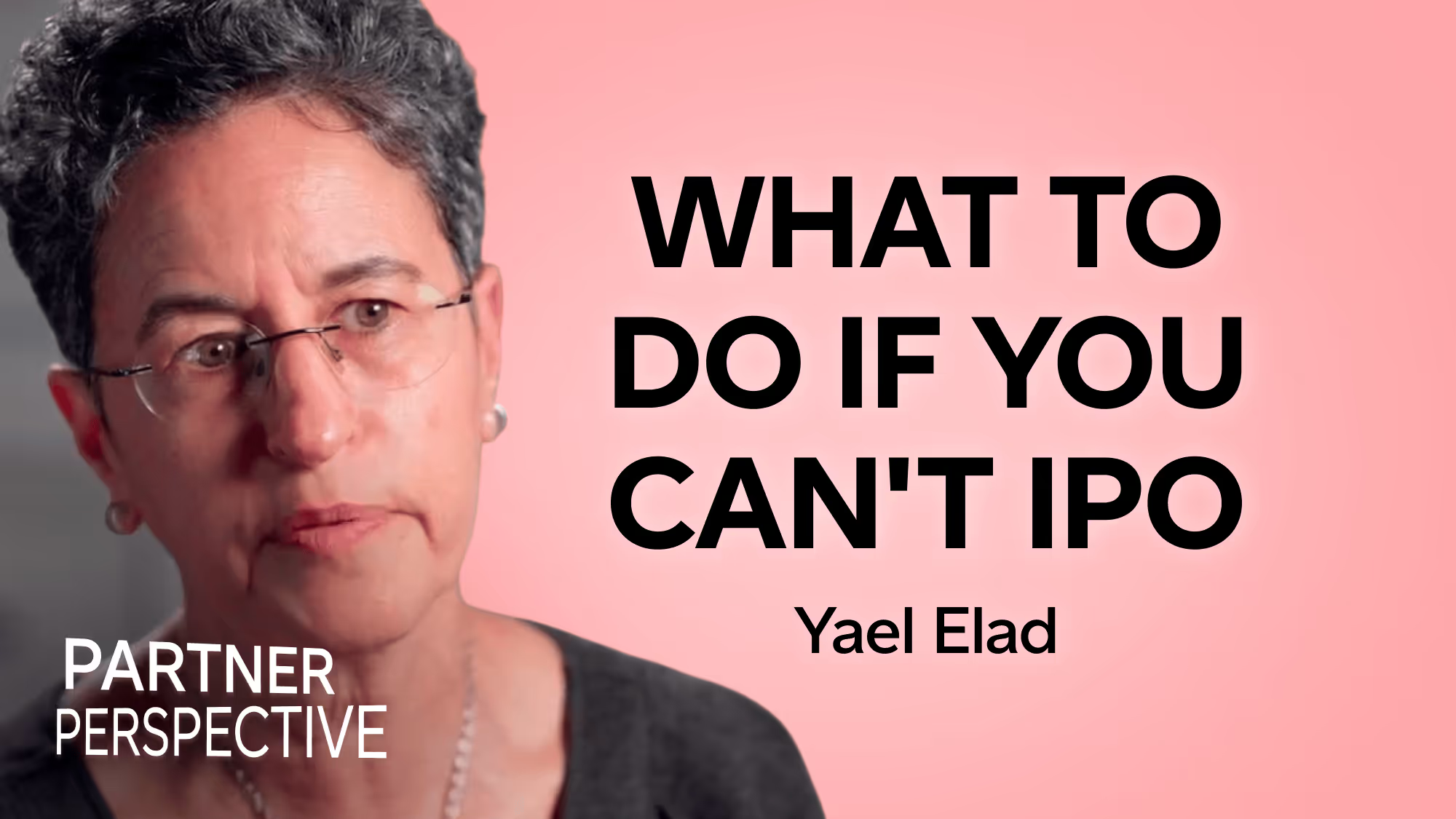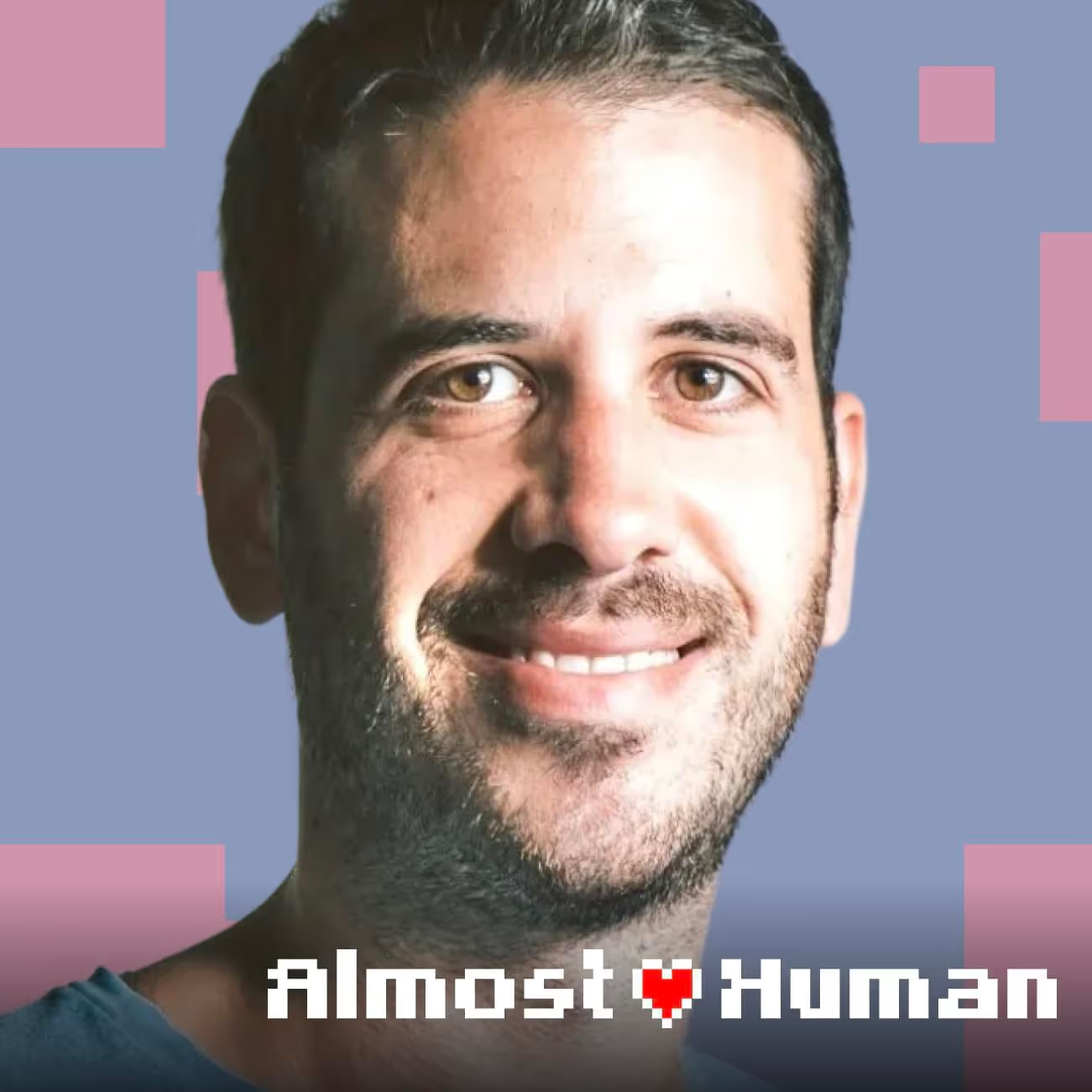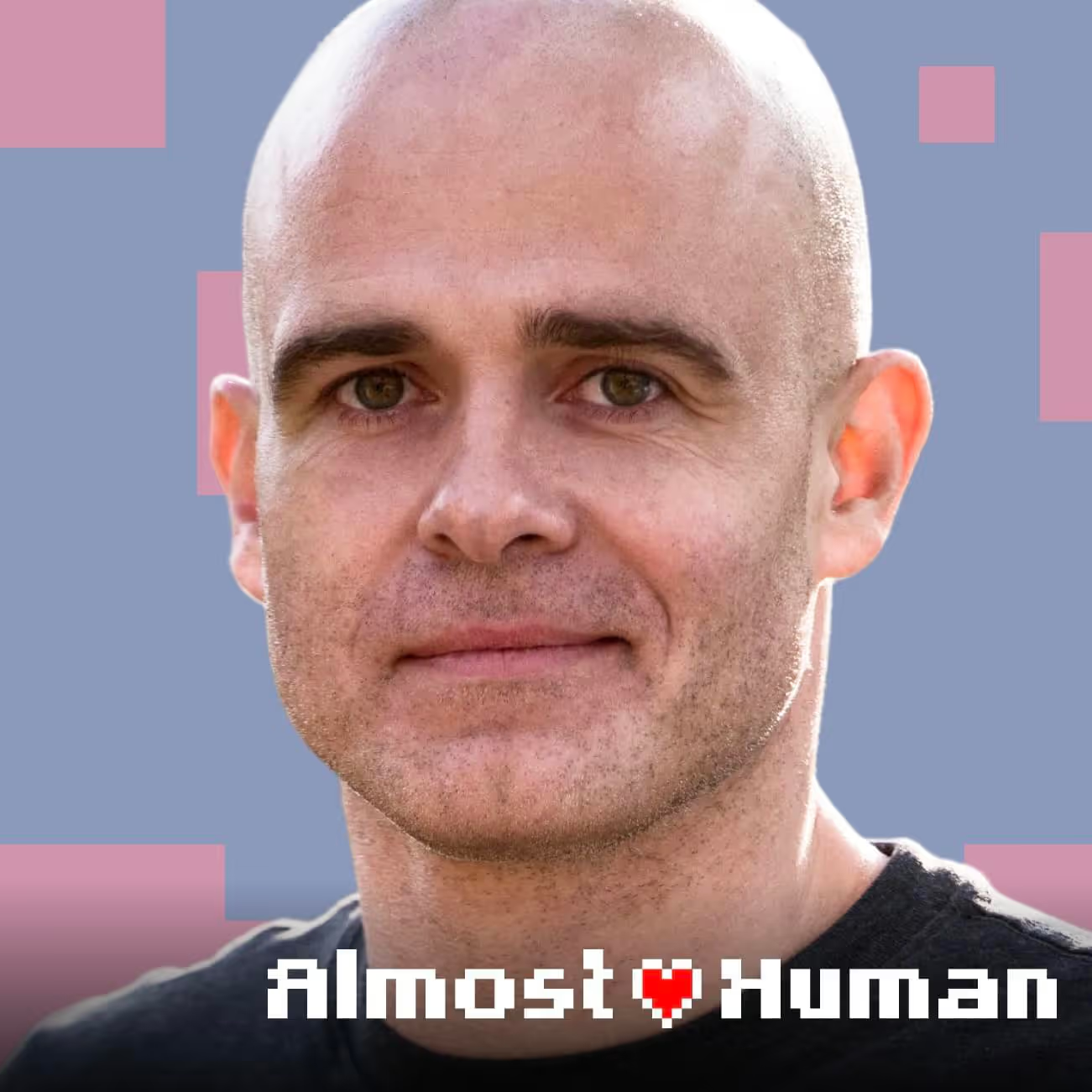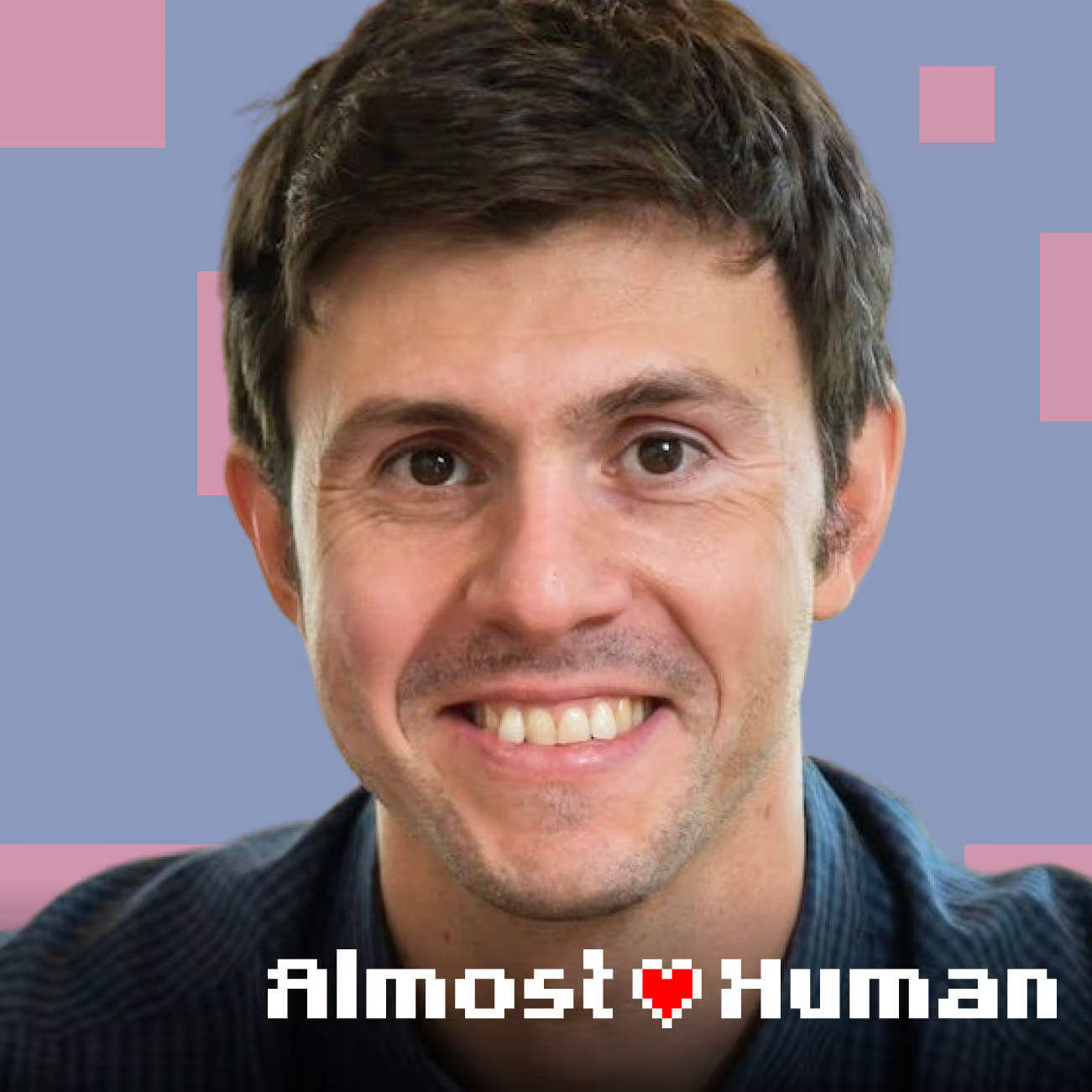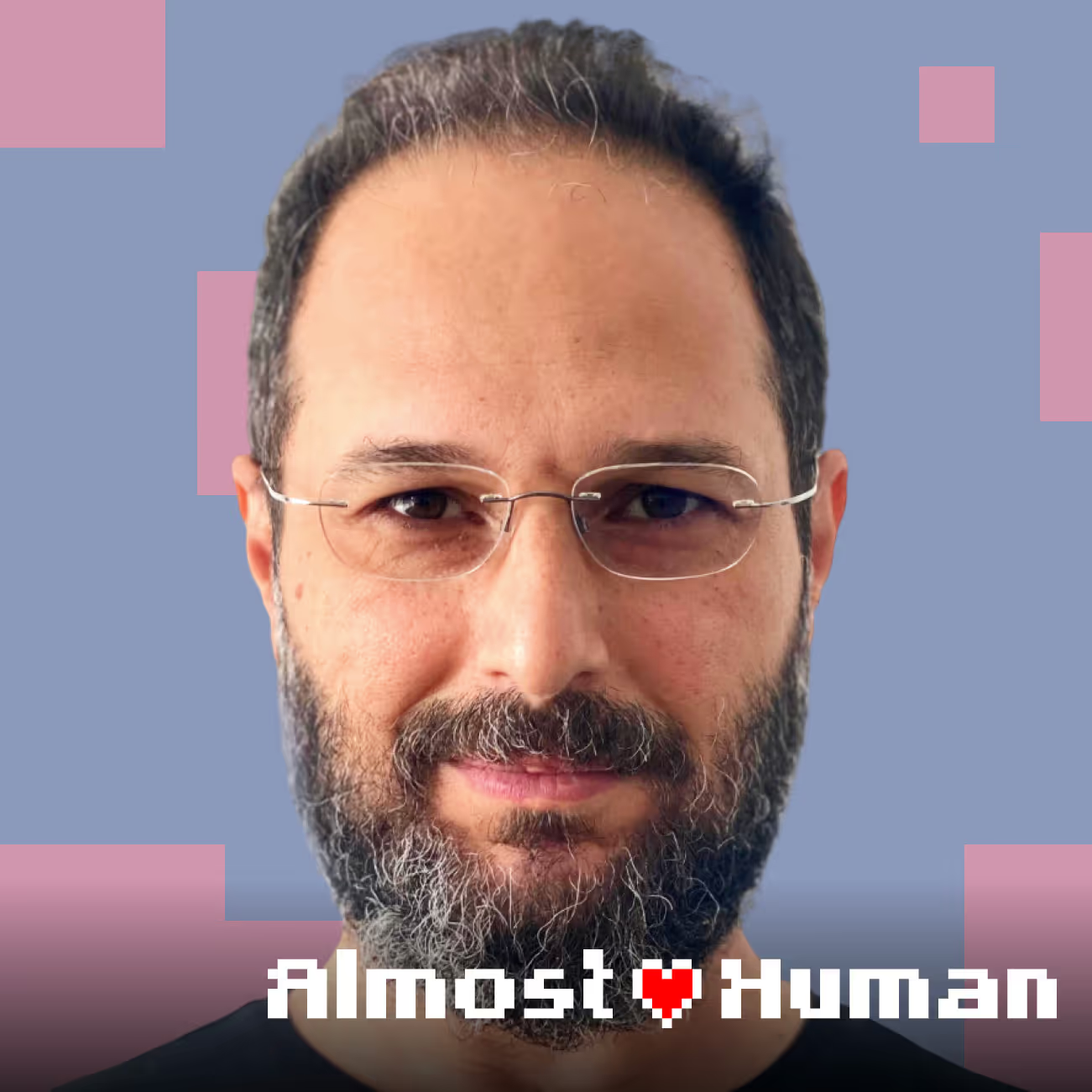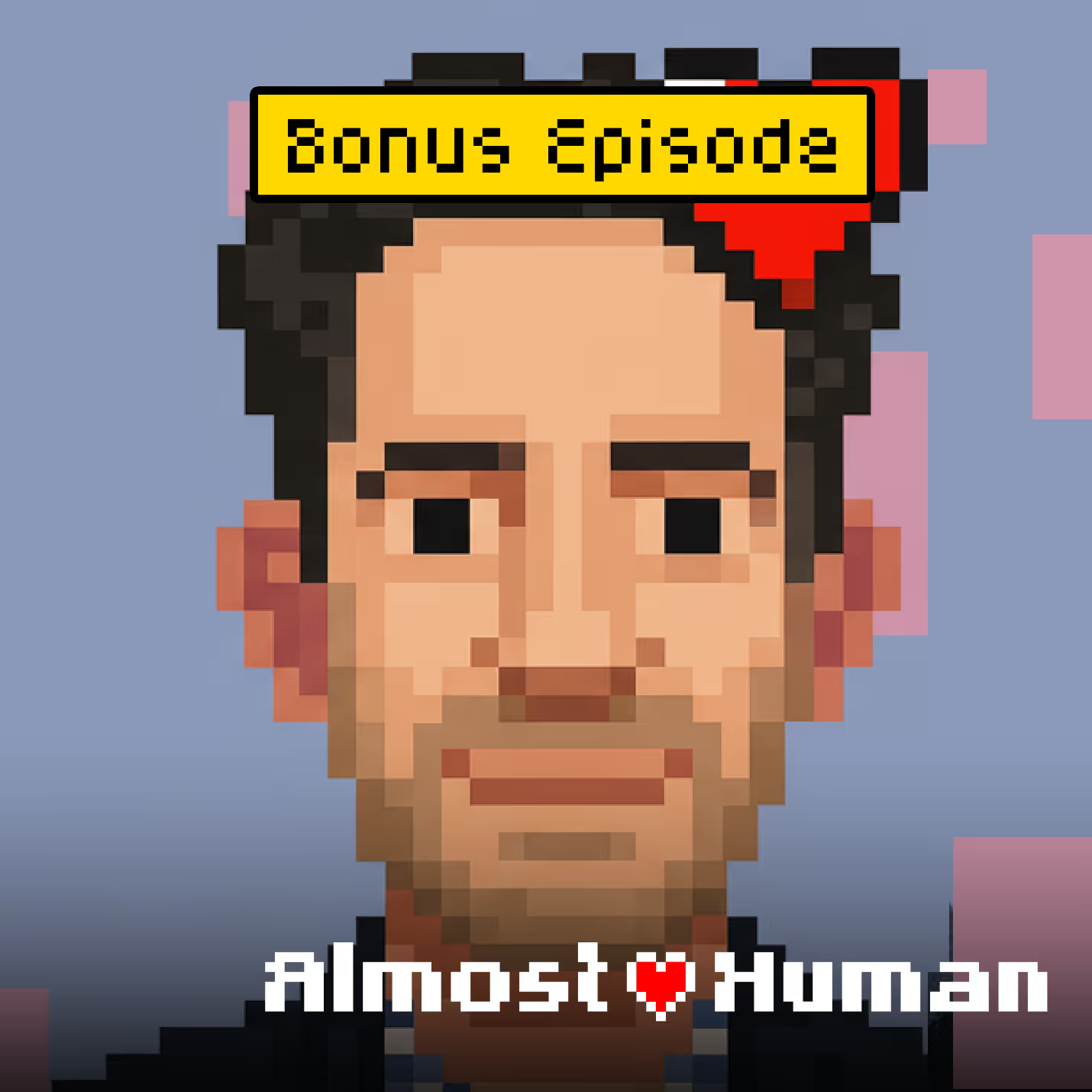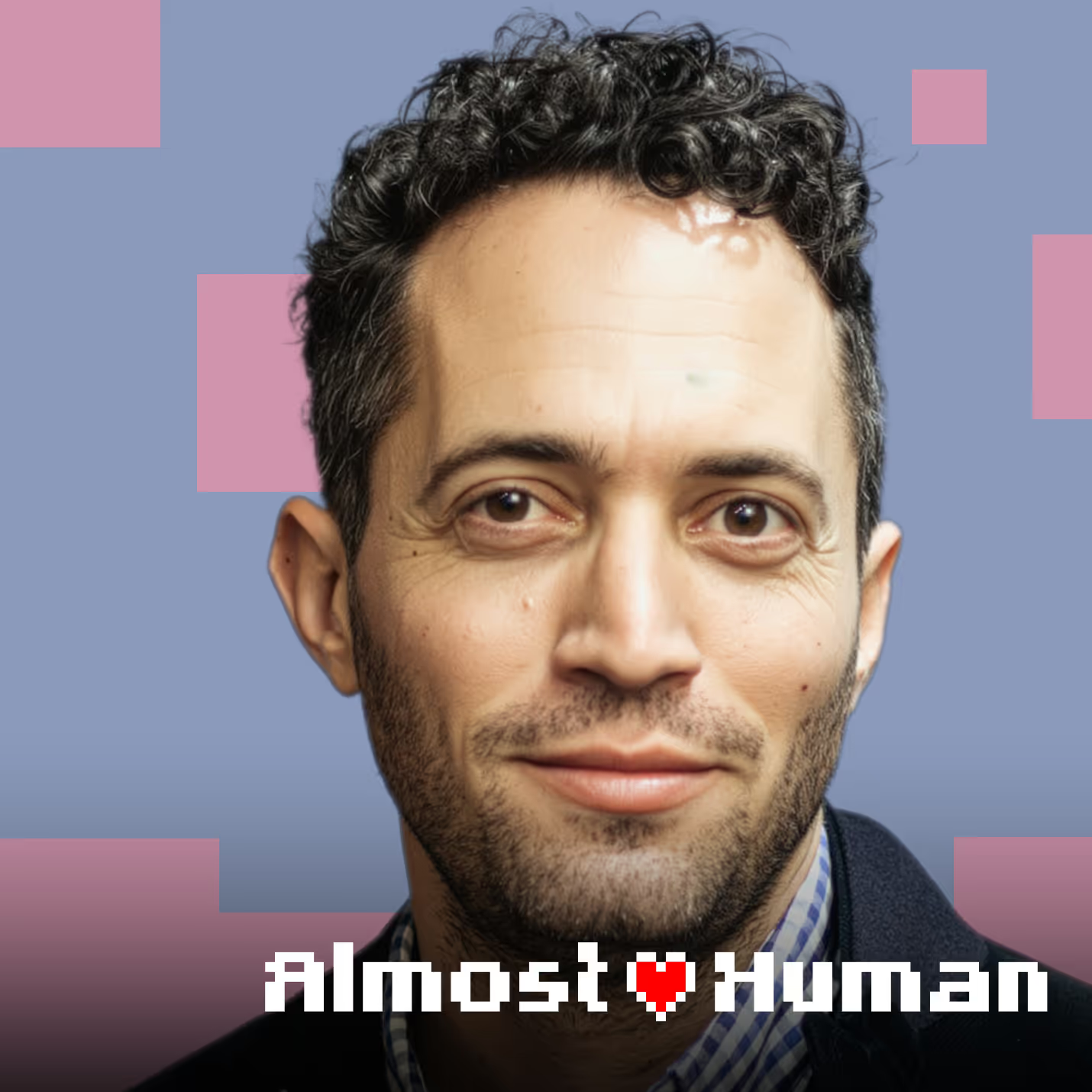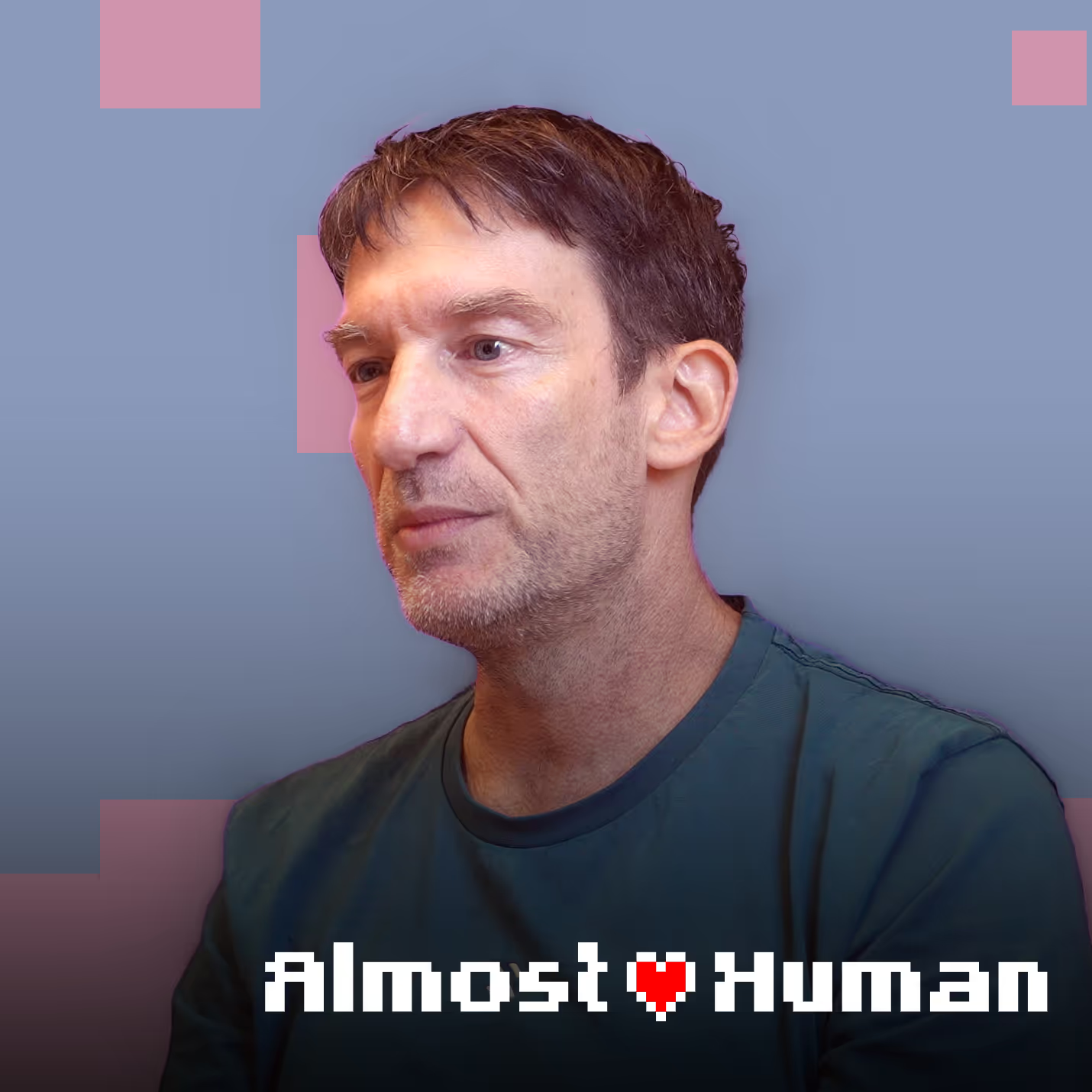Lior Eshkol



How can values create value? On this podcast, Michael Eisenberg talks with business leaders and venture capitalists to explore the values and purpose behind their businesses, the impact technology can have on humanity, and the humanity behind digitization.
Lior Eshkol



How can values create value? On this podcast, Michael Eisenberg talks with business leaders and venture capitalists to explore the values and purpose behind their businesses, the impact technology can have on humanity, and the humanity behind digitization.
Lior Eshkol
Lior Eshkol

Lior Eshkol
Lior Eshkol
- [00:00:00] Intro
- [00:01:49] From WeWork to Wolt
- [00:04:00] How Wolt Cracked the Israeli market
- [00:05:56] Everyone Wants to be a Wolt Driver
- [00:09:00] Safety First
- [00:09:41] Becoming Israel's Favorite Delivery Service
- [00:12:45] Becoming the GM of Wolt Israel
- [00:13:42] Growing Through COVID-19
- [00:16:40] What Can We Learn from Wolt Israel?
- [00:18:40] From Product Manager to General Manager
- [00:21:40] Wolt’s Business Model
- [00:22:30] How the War Changed Wolt IL
- [00:30:30] Wolt as a Cultural Icon in Israel
- [00:35:40] Changing Employment Laws
- [00:42:10] Wolt’s Unique Customer Support Team
- [00:47:40] Leading for Success
- [00:54:06] Consumer Delivery Trends
On this episode of Invested, Michael hosts Lior Eshkol, General Manager of Wolt Israel.
Lior (37) currently from Tel Aviv. Born and raised in Ramat Hasharon.
Served in the IDF Intelligence research as an officer. B.A in Industrial Engineering from Tel Aviv University and MBA from Harvard University.
Worked at Procter & Gamble, Amazon, WeWork and healthy.io. General Manager of Wolt Israel since 2020. Spearheaded massive expansion from restaurant industry to retail verticals, geo expansion from Tel Aviv to 75% nationwide population coverage;
Led a platform economy disruption in Israel revolutionizing consumer behavior, commercial marketplace, and impacting the labor market.
Please rate this episode 5 stars wherever you stream your podcasts!
Michael Eisenberg:
You're serving 2 million people, and people love you.
Lior Eshkol:
You know, actually, Wolt is a Finnish company.
Michael Eisenberg:
I know.
Lior Eshkol:
So our presence in Israel is very strong.
Michael Eisenberg:
But what's special about you? I know, but this is the biggest market for Wolt. And you're an icon, and you're a verb. There’s something about Lior, and I’m going to put you on the spot–I know it’s uncomfortable to talk about yourself–that you’ve figured something out. And that’s what I want to know.
I am so excited to have Lior Eshkol with me. She is the CEO of Wolt in Israel. And before I jump into your background, why don't you tell us what is your core value, and introduce yourself?
Lior Eshkol:
Sure. Thank you, Michael, for having me. It's really exciting. We're looking forward to the conversation. So I think one of my core values is, and I thought about it before listening to the other podcasts, was kind of treating people, or being the type of person that other people would want to learn from.
So be the type of person that years after, your grandchildren, or your children would say, “This is the type of person I want to learn from.”
Michael Eisenberg:
Amazing. And how do you measure that, by the way?
Lior Eshkol:
You know, I think it's something you measure in retrospect, but I think I see it today with my employees and colleagues.
I want to behave in a way that they want to come to me and learn, and also I want to work with people that actually share similar values that I can learn from.
Michael Eisenberg:
You know, Jamie Dimon once said that he only wants to hire people that he would send his kids to work for. I think that's a similar thing, but do people bring you their children to mentor them or grandchildren?
Lior Eshkol:
Actually, a little bit, yes. I have some people I mentor that are very young, but let's see in retrospect what will happen with them.
Michael Eisenberg:
That's important. Lior is the General Manager of Wolt Israel, and we're going to spend a lot of time on Wolt. She was also the head, former Product Director at Healthy.io, which is one of our portfolio companies.
And before that, she was former Head of Global Commercial Products at WeWork where I was also an investor. And I actually want to start with WeWork. So I've often made the, I don't know if it's a joke, but the comment about WeWork that WeWork is exporting Israeli culture, in a way. Adam obviously grew up in a kibbutz, and the first time I went to WeWork with the glass walls and everyone peeking in on each other and not a lot of personal space, it sort of felt like Israel, even though it was in New York.
And, if for years we kind of exported drip irrigation, and firewalls, and software, all of a sudden, Israeli culture became exported. Part of it's WeWork. There's some restaurants, for example, Miznon, the famous Israeli chef, Eyal Shani, starting to become hot, even outside of Israel.
Now, Wolt is not an Israeli company–
Lior Eshkol:
Right.
Michael Eisenberg:
But Tel Aviv is the world's biggest market?
Lior Eshkol:
That is true.
Michael Eisenberg:
How? Why? Why? This is a small country still.
Lior Eshkol:
It is a small country. So I think it's really interesting you talk about Israeli culture, and it has different aspects. I feel like one of the aspects that's talked quite frequently as well is the innovation, right, and the entrepreneurship.
It's usually talked about in the tech world, right, as tech innovation, sometimes coming from the army or intelligent corps, but we also have other types of innovation and entrepreneurship culture in Israel, which we see in the operational front as well. So I think that one of the reasons that Wolt is successful in Israel–that combination of really entrepreneurial spirit that comes from our employees, from our partners, from our restaurant partners–they're very, very, very innovative and react really quickly to the market–and a very engaged team that knows how to work together, collaborate, and just go and think that things are possible even when they might seem impossible.
And I think that culture of entrepreneurship and that feeling of something is possible–it's something that is really, again, often talked about in tech, but it's actually true in the operational world.
And I think that's some of Wolt's magic, really that team that believes things are possible, works together, and also the partners and the other kind of partners that we have that have their own vision of innovation.
Michael Eisenberg:
So let's drill down for a second. Is it easier to recruit restaurateurs to join Wolt in Israel than it is in other countries?
Lior Eshkol:
I don't know exactly if it's easier. I'm sure it's a little bit different. Obviously, you know, Wolt has proven itself to restaurant venues over time. But I'll be honest with you, every time we recruit a restaurant or retail, which I'm sure we'll get to after, is something that we commit ourselves to saying we do the best thing for this partner to succeed.
That's kind of how our model works.
Michael Eisenberg:
That's your job. That's your side of it. I'm more interested in the Israeli entrepreneurial spirit, which is, you suggested that restaurateurs here are also more entrepreneurial, and they're willing to give Wolt a chance, more so than in other countries maybe? Or no?
Lior Eshkol:
I think that, for example, you know that Wolt was acquired by DoorDash a few years ago in June, 2022. And we had Tony the CEO of DoorDash coming here. And we brought him to one of the restaurants that's actually very close to here. So maybe you know what I'm talking about, that during COVID–it starts with Café–
Michael Eisenberg:
What’s the restaurant’s name?
Lior Eshkol:
It starts with ‘Cafe…’
Michael Eisenberg:
Okay. Yeah.
Lior Eshkol:
Café Noir, that created their own delivery area set next to the restaurant, because they saw an opportunity and they created dishes that are powerful for delivery, that are right for delivery. And they really have everything to make sure the deliveries are most efficient.
And this is something that happened a year after COVID, not two years or three. And that's something that's very unique to the Israeli culture. Let's do it. It's possible. Let's work efficiently. Let's do it together. And let's do it quickly. And I think he was so impressed to see the amount of orders coming in from that specific venue at a single hour, because that owner was very innovative and understood the potential, and then really created that area specifically for deliveries.
Michael Eisenberg:
There's another element which we were joking about before we went on air here, which is, it seems to me that every soldier that’s come out of Gaza or every teenager, in order to make a few shekels, wants to be a Wolt driver–which by the way is most often on a tustus, or like a little–
Lior Eshkol:
Yeah, a scooter–
Michael Eisenberg:
A little moped or a scooter, or a bicycle sometimes. But why did this become so popular as a place of employment, or …?
Lior Eshkol:
It is quite popular. We do have a waiting list to become a Wolt courier, exactly as you said. And I think it became powerful because, you know, in general in the world, the gig economy is growing and people want to have more ways to make a living in a flexible way.
This is something that has evolved over time, and maybe that soldier or a student or something like that, that want to prioritize their own time. They don't want to work from nine to five. They want to have an opportunity to work when they want to work, create additional income. And at the same time, be their own manager, be their own boss.
And I think that's something that's really powerful, that Wolt really delivers on.
Michael Eisenberg:
When you compare Wolters or these drivers in Israel to other places, is there more demand to be a driver here than other places on a regular basis?
Lior Eshkol:
You know markets are very different, so it's a little hard to compare exactly.
Michael Eisenberg:
No, no politically correct answers. Like a direct answer. Like Israeli, come on.
Lior Eshkol:
I would say there is a big waiting list in Israel.
Michael Eisenberg:
Why is that?
Lior Eshkol:
Again, I think because–
Michael Eisenberg:
Is the gig economy more popular here?
Lior Eshkol:
I think it's a combination of the gig economy being more popular, the frequency of ordering in Israel and kind of like, you know, Wolt in general, being something that's very strong in Israel, we–
Michael Eisenberg:
I'm coming back to that in a second, yeah.
Lior Eshkol:
Yeah, absolutely. Because I think it's that the frequency of the ordering is quite high, because we first of all have the restaurant business; second, we also introduced our retail business. So we're able to offer to those soldiers, students, et cetera, work across different hours of the day, and they really seize an opportunity.
I would say if you open your app as a Wolt courier, it's very likely you'll receive a task within seconds. And then you can–
Michael Eisenberg:
Within seconds.
Lior Eshkol:
Yes, absolutely.
Michael Eisenberg:
Wow.
Lior Eshkol:
Yeah.
Michael Eisenberg:
And how many of the Wolt drivers are full time versus gig or part time?
Lior Eshkol:
All of our Wolt partners–we have, by the way, 20k Wolt partners–
Michael Eisenberg:
20,000 Wolt partners, which I should read as a courier or a driver, and a nice word is called a partner.
Lior Eshkol:
Yeah, absolutely. And that's, by the way, across all of Israel. So from the north all the way to Eilat in the south. They are all part timers. They all decide on their own way. And I think what's interesting, think of an average Wolt career–there is no average Wolt career.
They take their way into how they use the platform. So even think of a student, right? Maybe during the academic year, they can be part time, but during summer, it's a great opportunity to be full time. So we see a lot of that flexibility. So I think the answer is there are no full timers and part-timers.
So I think the answer is there are no full timers and part timers. There's a lot of like fluidity in how people use the passport.
Michael Eisenberg:
What's the median income of a Wolter?
Lior Eshkol:
Like 70 shekels an hour.
Michael Eisenberg:
That's 70 shekels an hour.
Lior Eshkol: Yeah.
Michael Eisenberg:
Minimum wage in Israel, in my memory, is 25 shekels an hour?
Lior Eshkol:
It's a lot higher now, almost 30.
Michael Eisenberg:
Almost 30 shekels an hour. So it's more than double the minimum wage to be a Wolter.
Lior Eshkol:
It is.
Michael Eisenberg:
And what's the risk to getting into a bicycle or car accident with the crazy Israeli drivers?
Lior Eshkol:
I think, you know, safety is obviously the number one concern that we have.
Michael Eisenberg:
What are the total number of missions or deliveries they do here?
Lior Eshkol:
We do a few millions of orders a month.
Michael Eisenberg:
A month.
Lior Eshkol:
Let's put it this way, yeah.
Michael Eisenberg:
So how do you think about accidents at the company?
Lior Eshkol:
You know, I think, as I told you, safety is our number one concern, and honestly, every life is so important that we take all of these things very, very, very seriously, and we don't really look at the numbers, but every person is very important on their own.
Michael Eisenberg:
So I have an admission to make to you, which is, I think I've ordered from Wolt three times in my entire life.
Lior Eshkol:
Really? You're very unique.
Michael Eisenberg:
But hold on. I will also say that Wolt is a verb in this country. Like if you Google something, people Wolt it. Or ‘volt’ it as they say here, right?
And I think Uber was a verb in the U.S. Unfortunately our transportation minister didn't let Uber into this country. How did Wolt become a verb in Israel?
Lior Eshkol:
I think that, let's start with–the Israel consumer was very open to adoption of new things, of new technology. People are very tech-savvy in Israel and people are very–also food here is really good.
So for those listening, the food in Israel is really amazing. And I think that combination of the warm climate and the entrepreneurship spirit really started off Wolt as a great, you know, success in the market, along with a very strong team that launched it here in the country, and a very strong product.
And then over time, we work to really continue on identifying those product-market fit opportunities, to continue on seeing what the consumers need and actually find answers to it in the app. So the idea is like, we always look for the most product-market fit being, for example, our entry from restaurant into retail, specifically within retail to pharma and supermarkets, et cetera.
And then over time, Wolt became just like the thing you do. It's the answer to everything. I think that that's one side of it. The second side of it, you know, in delivery businesses, many things can go wrong, right? We have, as you asked before, millions of orders a month. So many things can go wrong.
Every order is very specific. It's both a combination of a tech thing that's happening and also a physical thing that's happening at the same time. Think you're ordering from your phone, and then someone in the restaurant actually prepares the food, a courier comes and picks it up and brings it to you.
That's so many interactions. And what we really do in Wolt is we find those opportunities to optimize and improve those interactions, because we understand that the customer needs to choose us every day. And I think with that mindset, and very entrepreneurship team that continue on looking for the product-market fit, gradually, you know, Wolt became this verb.
Michael Eisenberg:
Do you think it has anything to do with the traffic? Like, I don't want to leave my house cause there's like a ton of traffic, and so I'll Wolt it.
Lior Eshkol:
Yeah, absolutely. That's one of those things. I think it's like the dense environment, the urban environment. And I think what's actually really interesting for us, you know, we started expanding outside of Tel Aviv a few years ago, and now we're almost nationwide. And we see it being successful also in other areas.
So I think it's kind of like, people find their way of using it in different areas. But I think for sure the density plays a part here.
Michael Eisenberg:
So what percentage of the millions of deliveries a month is Tel Aviv still?
Lior Eshkol:
Tel Aviv is actually now less than half of our work in Israel.
Michael Eisenberg:
That's unbelievable, because every second person in Tel Aviv is a Wolt driver.
Lior Eshkol:
That's true. But I think what's interesting is that we saw, again, that product-market fit, not only in Israel, in Tel Aviv.
Michael Eisenberg:
Yeah.
Lior Eshkol:
So it's now in kibbutzim across Israel.
You can go to a kibbutz. We actually have, you know, a grocery shop in a kibbutz on the Wolt app, which is really exciting.
Michael Eisenberg:
And who drives it? Some kid on a bicycle?
Lior Eshkol:
Some kibbutz kid, you know–soldier, student, whatever you said, in different areas. They also want to make a flexible living.
Michael Eisenberg:
How do they deal with the hills in Jerusalem, these drivers?
Lior Eshkol:
They're tough ones, you know.
Michael Eisenberg:
Yeah, yeah.
Lior Eshkol:
But they're, again, from Jerusalem. They know the area.
Michael Eisenberg:
Okay. I want to talk about you for a second now, which is, how did you become the GM of Wolt Israel? Like, we did your LinkedIn thing. I think you were 34 when you became the GM. Is that right?
Lior Eshkol:
That's true. Yeah.
Michael Eisenberg:
Okay. So how did you become the GM of Wolt Israel?
Lior Eshkol:
It's actually an interesting question, and the right answer is I just applied. They had a LinkedIn posting and I applied to that position. I was, I knew their investors, and I submitted my resume for the investors as well, which brought me for the initial interview.
But then I interviewed for the job. I had, you know, a first interview at HR, then a couple of professional interviews, and assignments, tasks, and here I am.
Michael Eisenberg:
And how many employees were at Wolt when you joined?
Lior Eshkol:
I think like 150, more or less.
Michael Eisenberg:
And how many drivers or partners?
Lior Eshkol:
4,000, more or less.
Michael Eisenberg:
And now?
Lior Eshkol:
We are more than 1,000 employees in Israel. We have the Tel Aviv HQ, and then we also have offices in Jerusalem and Haifa. And we have approximately 20K couriers a month, active a month.
Michael Eisenberg:
That's a lot of growth over a few years. And you joined right at the beginning of COVID, in the middle of COVID?
Lior Eshkol:
I joined October 2020, which, it was in Israel, kind of like the second wave of COVID when actually everything started closing up and it was closed for a few months afterwards.
Michael Eisenberg:
And Wolt took off during that time, big time. Why do you think–this is something that baffles me, to be honest. I keep thinking about this in a broader global context. So COVID happened. If you look at e-commerce, it shot up during that time. But retail’s made a comeback in a pretty meaningful way, and my sense is that the growth of, not sense–the growth of e-commerce has slowed.
My sense was restaurants have made a comeback also. But in Israel, even though restaurants have made a comeback, it doesn't feel like Wolt has slowed for a second. It feels like it continues to grow ever much faster. What's happening here?
Lior Eshkol:
To be honest, we actually grew more after COVID than during COVID.
Michael Eisenberg:
Why? Explain that to me.
Lior Eshkol:
I think, first of all, that consumer habit is something that's stuck, both from the consumer, but I talked earlier today also on the entrepreneurship of restaurants and retail venues, et cetera, that knew to adapt their operations to accommodate both for delivery and for the restaurants themselves.
So many of those venues made that adaptation. I think again, it's chasing that product-market fit all the time. And if you think during COVID, our main business was the restaurant. Currently one out of four orders, and even more, is actually for retail, from supermarkets, from pharm. Yeah. Which is something that we continue on looking for.
Michael Eisenberg:
Pharm, you don’t mean like, farms, you mean pharma. You mean like Superpharm, which is our local CVS, or Duane Reade or drugstore.
Lior Eshkol:
Yeah, but actually, people can order today, you know, over the counter medicine for Wolt.
Michael Eisenberg:
Right.
Lior Eshkol:
So imagine that you're sick, you're at home, and you have the cold, you don't want to go out.
Michael Eisenberg:
Yeah.
Lior Eshkol:
Within, you know, 15 minutes, you can have the medicine delivered to your home.
Michael Eisenberg:
And then the Wolt driver gets sick when he turns up at your door. Because he catches you. But at least the people in the store don't.
Lior Eshkol:
Yeah, absolutely.
Michael Eisenberg:
You mentioned when I sat down with you, I said to you, I said to you like, well, drivers are ubiquitous and wherever you turn up, when I came down, you were already in our office.
You want to tell everyone how you got in here?
Lior Eshkol:
So I got in, I, you know, rang the bell and no one answered. And then a Wolt courier came in, picked up the phone, and called the person that had the delivery, and they walked them in. So I came with a Wolt delivery here. It's a funny but true story.
Michael Eisenberg:
Not, not, not in the little Wolt container though.
Lior Eshkol:
No, no.
Michael Eisenberg:
So, what has the rest of the world learned from the Israeli market that have become best practices that you could take the Wolt elsewhere?
Lior Eshkol:
I think, at the end when you ask like what, why Wolt is a success and what people can take, again, it's that entrepreneurship and innovation spirit.
Michael Eisenberg:
I know, but you can't make, you can't make Swedes or Danes, more entrepreneurial, like Café Noir is a super entrepreneurial guy, I mean he takes up more of the sidewalk down the block than anyone I know. You can't do that in normal countries, like they actually limit how far you can expand your sidewalk seating, right? Or you're just going to set up a place for deliveries. So like, what can they learn? What do they learn from you like in Wolt in, wherever it is in Europe or DoorDash around the world now?
Lior Eshkol:
So I think they learn not only from the venues, but the team in Wolt, they're kind of like, you know, entrepreneurship spirit and yes, can do attitude, and how to just make things happen and not wait for everything to be perfect, but kind of like launch; see how it goes; get data; learn. We use a lot of data. We talked a little bit before about this combination of tech and physical product. Think of how many inputs go into the system that we can optimize for. And that way of working is something that, you know, is used Wolt-wide. We also need to learn a lot from them as well.
But I think that, you know, entrepreneurship spirit and within the team.
Michael Eisenberg:
How do you teach that?
Lior Eshkol:
We had a lot of visitors in Israel. You know, Mickey the CEO was here a few times.Tony, as I said before, was here a few times. And it's something that we have many team conversations. We're a very collaborative company.
Michael Eisenberg:
Do you have a specific example of things that were taken from Israel and put in the rest of the world?
Lior Eshkol:
OTC, for example, that we talked about before. So over the counter medicine. We actually discovered the need for it by looking at search. So we actually look at what people search on the app. And then we saw that, you know, drugs like medications was the number one searched thing that we didn't have a solution for.
So we worked with a product team to figure out a solution to productize it, and now it's being used in other places as well, and that's great. It's really kind of an entrepreneurship spirit and collaborative approach that's afterwards used in different places.
Michael Eisenberg:
And it's been implemented elsewhere?
Lior Eshkol:
Yeah, yeah. Absolutely.
Michael Eisenberg:
Okay, give me another example.
Lior Eshkol:
Other examples, I think, in general, kind of like how we grew with retail is a great story.
Michael Eisenberg:
Tell me.
Lior Eshkol:
We started, you know, quite early with a supermarket business, I would say in 2021, with a strong design partner that we have, that afterwards really helped to design the product work as well, as well as our operations best practices that are being used elsewhere as well.
Michael Eisenberg:
You're a product manager by experience or training. Now you're a general manager. What is unique about being a product manager as applied to a general manager role that you think is super important for other people to know?
Lior Eshkol:
I think a product manager, honestly, I would say is a great, great job in which you learn how to really think of the consumer and kind of like design solutions for them. And honestly, as a GM, you do that thing as well, but maybe using slightly different tools. As a product manager, you really think of kind of like, what is the need of a customer, and then how do I solve for it in the best possible way, while maximizing customer experience?
And you do similar things as a GM. You think of, where do I need to expand the market? What are additional product-market fits? I would say that as a GM, there's also a lot of work on the team aspect, which is really, really, really important. Product managers tend to be more of individual contributors. But that consumer mindset and growth mindset is something that both roles have in common.
Michael Eisenberg:
How'd you learn to manage people?
Lior Eshkol:
So you asked me before I got to Wolt, I can admit it now that before Wolt, I didn't manage more than 10 people. And now I'm definitely managing a different level of people.
Michael Eisenberg:
That's amazing.
Lior Eshkol:
I think that first of all, I learn and I ask a lot of questions. So I really made sure from the beginning I was involved, because I joined a company that was already here.
I'm not a founder, right? So I joined a team that was already a successful team with great results in Israel. But the goal was to move from, let's call it like a startup lens to a scale up phase. And what I did is, I really asked a lot of questions and really, like, learned from the team because they knew best.
And I think that over time that they saw that my asking questions and really trying to understand what's happening, made my managing them much easier because they knew I really tried to understand where they're coming from. And that's being, you know, in the field type of work is something that I think for me, I discovered, is really strong in management.
Michael Eisenberg:
Do you have siblings?
Lior Eshkol:
I do. I have two sisters.
Michael Eisenberg: You're the oldest?
Lior Eshkol:
I am.
Michael Eisenberg:
Okay. Okay. I could have guessed. Why did Wolt open in Tel Aviv to begin with? I know it was before your time.
Lior Eshkol:
It was before my time. It was 2018. It was actually a great story about, you know, Imri, who was the former GM before me.
They had a type of business that was closed, and they had a very strong team that was looking for something to do. And they kind of shopped around for things that team can do. And then, you know, they shopped through Wolt and that became a success. I think at the same time, there were also–
Michael Eisenberg:
So they pitched Wolt on opening up Wolt Tel Aviv?
Lior Eshkol:
Yeah, they have. At the same time, there are also investors from Israel that started investing in Wolt.
Michael Eisenberg:
Right. 83 North, right?
Lior Eshkol:
Yeah, absolutely.
Michael Eisenberg:
Interesting. Okay. What is the business model for Wolt? And is it the same globally?
Lior Eshkol:
It is the same globally.
Michael Eisenberg:
Okay. So what's the business model?
Lior Eshkol:
How Wolt makes a living?
Michael Eisenberg:
Yeah.
Lior Eshkol:
So Wolt is, as you know, a platform that connects consumers, merchants and couriers. The way that we as a company make a living is through that connectivity. So we charge from users consumer fees and from restaurants, the venues, the commissions.
And then we, obviously, these are our main kind of revenue drivers. And our cost drivers are obviously the courier cost, the support cost, et cetera. That's kind of like our basic P&L, how it works.
Michael Eisenberg:
Has the war influenced the cost structure of Wolt here?
Lior Eshkol:
I think the war unfortunately influenced a lot, but it was also very interesting to see how the team here reacted to it.
Because think that, within a day, so many things unfortunately changed. We're also, by the way, a very young company. So the average age in Wolt is 26.
Wow.
I think now it's 27, people grew up. But it's a very young company, which if you think of the people, a lot of them, unfortunately, were actually at the party or went to reserves. And we as a company needed to–
Michael Eisenberg:
How many of your employees did you have at the party? At the Nova party?
Lior Eshkol:
We had a few. We had a few. Luckily, all of them came back, but it's something that's, you know, not taken lightly.
Michael Eisenberg:
Wow. Wow. Not taken lightly at all. And what percentage of employees were called up to reserve duty?
Lior Eshkol:
15, almost 20 percent at a certain point, but I would say an average 15 percent.
Michael Eisenberg:
And what percentage of drivers were called up, do you think?
Lior Eshkol:
We actually called all the drivers.
Michael Eisenberg:
You called all the drivers?
Lior Eshkol:
Yeah.
Michael Eisenberg:
20,000. How many were called up to reserve duty?
Lior Eshkol:
You know, I think it's like the general ratio in the population.
Michael Eisenberg:
Fifteen percent, twenty percent?
Lior Eshkol:
A little bit less, but something like that. But I think when, you know, when the war started happening, there are a few things we were thinking of. First of all, we knew as a company, the importance of Wolt in Israel as an infrastructure. We need to find a way to stay open, and it means totally refactoring our business.
Figuring out how we do deliveries differently, different hours, different ways of working. And then at the same time–
Michael Eisenberg:
Why? Explain why you had to figure out different hours.
Lior Eshkol:
Because so many things had changed. So think of what happened to us. We talked about how many people were in reserves. It happened to venues as well, happened to couriers as well, as you asked.
So we needed to understand how to refactor and change our processes, and quickly adapt to the new situation. Now, when you think of what we talked about before, thousands and thousands of orders a day, you know, tens of thousands of orders a day, that means you really need to make sure how everything is extremely efficient, still solving for customers, partners, and couriers, and creating a sense of stability in that type of a situation.
We reduced opening hours, we, you know, we changed a lot of things.
Michael Eisenberg:
Reduced opening hours at the restaurants, not at Wolt.
Lior Eshkol:
Yeah, at the restaurants. And I think that that was our own aspect, except totally refactoring the business, figure out new ways of working.
Our sales team moved to doing customer success, you know, support, cause that was what was needed at the time. My leadership team was so inspiring and really, really, really did everything with our team. And it was amazing to see how people actually, the resilience of the team was uncanny. Our head of the retail department, Israel Avrahami, for example, took his team and they started picking up in the grocery stores because the grocery stores didn't have people picking.
And a lot of people needed food delivered to their house. So our team was actually there at the front. Same, by the way, with our operations team. Eliya Yosefyan, who was in charge of more than 20K, you know, couriers a month, really worked with his team in the field to support couriers and–
Michael Eisenberg:
What does that mean?
Lior Eshkol:
Giving out equipment–
Michael Eisenberg:
So your head of couriers went out to the field to give out equipment, which is…?
Lior Eshkol:
The bags, you know, the equipment, the gear, all of that. And he also called couriers. Everyone did what needed to happen, and I think that's–you asked before about some of the success, you really see it in crises, how the team really rallies and the resilience of the team, I think is extremely inspiring.
We made sure as a company, you know, we talked about the young force, the safety of our employees was number one for us, but also their connection to what's happening. So we made sure they had stability in the office.
We made sure to communicate with the employees all the time, and I'll say again, I was so, so impressed by the resilience of everyone.
Michael Eisenberg:
I'm actually now thinking, right in the first couple of months of the war, there were sirens in Tel Aviv nonstop. That's 50 percent of your business. I'm trying to think about the Wolt courier partner riding around Tel Aviv and a siren sounds that he's got somebody's food on the back of–what does he do?
Lior Eshkol:
First of all, he knows, because we communicated very clearly from day one, that their safety is the number one priority. So he knows that if there's a siren, they stop, they follow the instructions needed, and if the food would get there and it's going to be cold, that's our responsibility. And I think that's, in general, the approach we took.
It's our responsibility. We compensate the customer for this. We compensate the venues. It's not about them, you know, taking care of their safety, but I think it was, also for couriers, interesting because unfortunately the war is not something that ended in a week.
Michael Eisenberg:
Yeah.
Lior Eshkol:
And they need to continue on making a living.
We all know, by the way, that making a living is more than actually the money. It's the sense of purpose, it's the sense of doing something. I think we all remember the first day of the war, how chaotic everything was and that, you know, sense of stability and something that still is working is something that's meaningful for everyone on a human level.
Michael Eisenberg:
Did the number of orders go up or down in the first month?
Lior Eshkol:
It fluctuated. Obviously the first week, you know, decreased because again, many venues weren't really open and many couriers, but over time, I think like a month and a half after it already came back, more or less to what it was, the mix obviously changed.
Michael Eisenberg:
You got more what? Medications?
Lior Eshkol:
Supermarkets, for example.
Michael Eisenberg:
Supermarket, okay.
Lior Eshkol:
People wanted to get food delivered to the home and have that opportunity. And again, it was the team that's always reacting to see what we can add to the app, kind of like, you know, according to searches, according to different things.
Michael Eisenberg:
And what are the things that were added post the war starting?
Lior Eshkol:
Safety equipment, you know, generators, as I'm sure you remember that.
Michael Eisenberg:
They delivered generators on scooters?
Lior Eshkol:
No, we have cars in different areas, but that was, that was looked for. Transistors, you know, radios.
Michael Eisenberg:
Transistor radios. Yeah.
Lior Eshkol: Yeah. And I think then–
Michael Eisenberg:
Starlink?
Lior Eshkol:
I think in general, you asked a little about the magic of Israel and you see it in the team, and you see it in the general public, is how people really, you know, adapt and find solutions. And I think for me, more than find solutions, work together to figure out a problem.
Michael Eisenberg:
Have you documented all the various kind of ups and downs and changes you went through at Wolt? I think it's fascinating. Have you, have you written it up?
Lior Eshkol:
Not yet.
Michael Eisenberg:
Okay, we'll give you a transcript of the podcast and you can do that.
Lior Eshkol:
I feel like you have.
Michael Eisenberg:
I actually think you should write it up. It's a lesson in resilience for the rest of the world. Because stuff happens and I kind of wonder, I'm sitting here thinking two things. One is, I wonder, is there Wolt in the Ukraine?
Lior Eshkol:
No, there is no Wolt in the Ukraine.
Michael Eisenberg:
I wonder if, like, in Ukraine, the reaction was the same to what it was in Israel, or if there's something kind of unique about the culture here that, by the way, I'm looking for a generator and someone to bring it to me on a scooter, and also, you know, the kind of resilience.
And the second thing I'm sitting here wondering, and you probably have an answer to this question, is, like, did anyone call you and say, “I need another order of food, it's cold because there was a siren?”
Lior Eshkol:
I think that's also a sense of normality, right?
Michael Eisenberg:
So the answer is yes!
Lior Eshkol:
The answer is yes. But I think it's also a sense of normality and I think, you know, we talked about supermarkets and transistor radios, but at the end of the day, having ice cream delivered to your house after a very stressful day is also important.
And I think people figure out that need as well. And I think in general, so you know what Wolt is in Israel it's part of normality. It's part of life.
Michael Eisenberg:
Yeah. I'm going to talk about that in a second.
Lior Eshkol:
So when Wolt stops, it's like, you know, an infrastructure stop. It's like the electricity stops or it's not something you don't, won't even consider happening.
Michael Eisenberg:
That's a really first world problem. Ice cream not coming your way.
Lior Eshkol:
Absolutely.
Michael Eisenberg:
I'm just thinking about this. “Hey, kid, siren, go into the safe room. Let's order ice cream.” Is that what happened?
Lior Eshkol:
No, it's not. Not from the mamad {safe room}. Let's put it this way. But think of how many people are part of the Wolt ecosystem, right?
So we talked about the thousand employees we have. Then we talked about 20,000 couriers. And then we have 8,000 venues, each one of them employing numerous employees. We're talking about, you know, 30, 40, 50,000 people that are being touched, you know, within hours of Wolt's activity. So it's more than ice cream.
Michael Eisenberg:
So Dor Gabizon, who's Head of Retail Business Development, says that you have become a part of national culture. And it is actually a cultural icon, those blue boxes and that Wolt–it's a cultural icon. It really is here, particularly in Tel Aviv. But I live in Jerusalem, it's there too now.
Did you do anything to make that happen or is it just a, like one of those cases where there's just a, you know, the hand fits the glove, Israelis like their food delivered and like the Wolters and there's a lot of excitable Wolter partners?
Lior Eshkol:
First of all, I think Dor, by the way, is an example of a true entrepreneur.
He started the retail business in Israel. So in the early days when there was no product support and he really did everything, you know, by himself, he's also one of their earliest employees. What we did to do that is, again, constantly thinking on how we continue adapting for the neediest customers and really, really, really, really work harder on fundamentals.
Make sure we continue on delivering it at excellent quality, time and time again, learn from what we do. And over time, you know, that delivers, and obviously it also helps that the bags are outside, and they're very nicely blue-colored, which helps the visibility.
Michael Eisenberg:
Maybe it's because you're blue and white! I just thought about that right now. Like the colors of the flag.
Lior Eshkol:
I'll write it in my book afterwards.
Michael Eisenberg:
Yeah. You really should write, I'm not kidding, you really should write a book. How do you think, like, what is Wolt? Is it like a marketplace? Is it a logistics system? Is it just there? Like, what is it? How do you define what it is?
Lior Eshkol:
Well, it's a platform that, you know–
Michael Eisenberg:
Yeah, platform is so bland though.
Lior Eshkol:
I think the thing is, it's a marketplace that can become whatever that consumers want it to be. And that's exactly the example you see here. It started from restaurants, and now one of our orders is not from a restaurant.
And then we're only talking about–Wolt has been in Israel in only five years,
Michael Eisenberg:
Right? It's remarkable.
Lior Eshkol:
Yeah. So I think Wolt really is what it will become. It's, you asked how many full time couriers we have. And the answer is, it fluctuates. So a marketplace platform really enables the people participating to make with it whatever they want.
And as you know, the Israel people are very resilient that way and very entrepreneurial.
Michael Eisenberg:
And they come up with all sorts of things that they need.
Lior Eshkol:
Yeah, that's true. That's true. Also, by the way, just to remind us, we do have a great product that enabled all of that. We have a very, very strong consumer fronted product.
And also you asked before, a very supportive global team, by the way.
Michael Eisenberg:
I find it fascinating that there's actually almost no competition here for Wolt. I mean, there's like the Yango or the Y Delivery, whatever they call that. I've never used that, but I have used Wolt three times. But you know, my kids won't order from a restaurant if there's no Wolt.
Lior Eshkol:
Really?
Michael Eisenberg:
Yeah. They won't. They find it a pain in the neck.
Lior Eshkol:
Yeah.
Michael Eisenberg:
Why? Like, why is that?
Lior Eshkol:
I think you can ask other people.
Michael Eisenberg:
I’m asking you, though.
Lior Eshkol:
Why is there no other–
Michael Eisenberg:
Yeah, why is there no competition?
Lior Eshkol:
First of all, it's not really true. When Wolt entered Israel, TenBis was a very, very strong household name in Israel.
Michael Eisenberg:
There was competition, but there's not anymore.
Lior Eshkol:
They’re still a big company, but I think it's more than that. If you think of the competition to Wolt, Wolt created a new type of behavior. You said before yourself that people came back to restaurants and they also, you know, order from restaurants. So that's a completely new behavior.
Michael Eisenberg:
Right. How did you do that?
Lior Eshkol:
It's this constant, you know, adapting to consumer need, constantly focusing on the fundamentals, our operations.
Michael Eisenberg:
You didn’t do anything special, you just kept doing your job all day, like working on the fundamentals and focusing? There must be something you did that was special. A secret sauce that you want to share.
Lior Eshkol:
Honestly? If you want to, and I'll tell you now what the secret sauce is. We have a saying at Wolt, is doing common things uncommonly well. In a repeat way. And I think at the end of the day, you know, when we tell the story of Wolt, it's not a story about this phenomenal, you know, app, although we have an amazing product.
It's not a story of an amazing marketing campaign. You know, it's not a case study in that, although we have a great marketing team. It's this ongoing pursuit of making sure you focus on the fundamentals, making sure which are for us, supply, delivery times, you know, customer support, all of that, to really provide for your consumers.
Because think of our business model. People need to choose us every day. Every day, a consumer needs to go into the app and actually order. And by the way, same as the venue. They have an app in their store, and they need to swipe it to go online every day. That's a choice they're making, and the couriers as well.
Michael Eisenberg:
My friend David Fisher, who was the Head of Revenue at ad sales at Google, and the Head of Revenue at Facebook, now is an investor at O1 Advisors, said he once got advice earlier in his career to just be competent. And he thought it was like insulting initially, and then thought about it. And so for, well, it turns out that 98 percent of the people are just not competent.
And so therefore, being competent is a significant strategic advantage. And that seems to be, in a nutshell, what you're saying.
Lior Eshkol:
I think so.
Michael Eisenberg:
Just being competent in a really good way.
Lior Eshkol:
And a very good and engaged team.
Michael Eisenberg:
Globally, and I'm going to macro for a second. And there is an ongoing, I was at Benchmark when we made the Uber investment.
And since the gig economy started, there has been a global debate on how to classify the drivers, the workers in America, they call them, are they 1099s, or not. We have, like, a lawsuit against Wolt in Israel over this very same topic. This is a topic that every government, country, company like Wolt is dealing with.
What is their status now in Israel? Are they freelancers or employees?
Lior Eshkol:
They’re freelancers.
Michael Eisenberg: They're freelancers. And, do you think that's the appropriate definition of what they are?
Lior Eshkol:
I think exactly as you said, employment laws are changing and everyone is trying to figure it out. What is this exactly, this thing? I think that we know, we said before, that the needs of people is changing in the workplace.
People don't necessarily want to go from nine to five, and that's okay. But we as a society need to find solutions to that and not, and not always go back to the past. So, I think that's a lot of the issue with employment laws, they're, at least in Israel, based on decades before.
They haven't adapted to the needs of people today. And so that binary choice maybe is not the right way to look at these things. And that's what the other countries and everyone is trying to figure out.
Michael Eisenberg:
Okay. So, if you were writing the law, what should it say, the new labor law?
Lior Eshkol:
My next book. I think that–
Michael Eisenberg:
I'm giving you the opportunity to write a law.
Lior Eshkol:
Yeah. I appreciate it. I’ll ask my lawyers a little bit for their opinion.
Michael Eisenberg:
No, no, no, no.
Lior Eshkol:
They'll make it so long.
Michael Eisenberg:
Look, no lawyers. This is just an open conversation, me and you, in front of thousands and thousands, if not tens of thousands of people.
And you have a chance now to define what the labor law should be for the next two decades.
Lior Eshkol:
I think we need to find a sustainable solution that allows for flexibility, which is a great need of people in the modern workplace, and also enable a sense of security, so that flexibility and security is something that needs to be dealt with.
Michael Eisenberg:
Okay, but be specific. That's–everyone's trying to get it there. Okay. So now let's be specific. What should it say?
Lior Eshkol:
I can't tell you if something exactly the law would say, but I think it's definitely something that everyone's trying to figure out. We are learning from other-
Michael Eisenberg:
No, no, but you must have a point of view on this.
Like, what are the core tenets?
Lior Eshkol:
My point of view is that–
Michael Eisenberg:
We can lead on this. So, theory. Because we're a small country and because you're such an incredibly dominant and capable player here in Israel, and you have exported this excellence outside, I actually believe that we have a chance in Israel to establish what the future of employment law should look like.
And I think what you've done for 20,000 couriers and 1,000 employees is nothing short of incredible. People want to work for Wolt, so you've done something right.
Lior Eshkol:
Yeah.
Michael Eisenberg:
And so now, I want to package this up and say, hey, just like we invented drip irrigation, right? Just like we invented the kibbutz in an office space with glass doors, now we're going to invent employment law for the 21st century, employment law by Lior.
So what should it look like? This is like an opportunity.
Lior Eshkol:
Yeah, I know, absolutely.
Michael Eisenberg:
You're the secretary of labor for the entire world.
Lior Eshkol:
New world. I think it's a good question. Unfortunately, I don't have a good enough answer. I think it's something that supports flexibility but also addresses the need for a certain type of like, you know, support system.
Michael Eisenberg:
So in Israel everyone has health insurance. So providing health insurance is not an issue here, because we have mandated health insurance by the government. So that's okay, one problem that we don't have to deal with that America, for example, does have to deal with. Flexible hours, we want them to have. Should there be a different tax code?
Lior Eshkol:
I don't know enough. Unfortunately, that's not my occupation. You're asking me what's the difference between a product manager and–
Michael Eisenberg:
Should there be severance pay? No, because then it's not freelance work and they're not working full time either.
Lior Eshkol:
But I think you're exactly, your answer is old, right?
Michael Eisenberg:
Okay.
Lior Eshkol:
It shouldn't be because that's how things are.
Michael Eisenberg:
Right, I agree.
Lior Eshkol:
I think it's about opening the book, right? It's like, totally thinking–
Michael Eisenberg:
Do people need pensions from being freelancers?
Lior Eshkol:
I think pensions are definitely something that people need, but let’s not take a Wolt courier, let's take a plumber, for example. Do they not need pensions?
Michael Eisenberg:
So we have a mandated pension system in Israel, kind of.
Lior Eshkol:
That's true for the couriers as well, by the way.
Michael Eisenberg:
Right, I know.
Lior Eshkol:
Yeah.
Michael Eisenberg:
So is the idea that if the government provides kind of a mandate, they don't provide the pension, a mandate that everyone has to have a pension, everyone gets health insurance, et cetera, you can solve most of the problems? So like, what are they, what are they angry at you about?
Lior Eshkol:
I think you need to, again, open up the book because you're talking, I would say logically, and the law is really based on hourly wage and things like that. All of it needs to happen. Maybe someone wants to work for 20 minutes. Is that not okay?
Michael Eisenberg:
Yeah. No. So, okay. So, here's another thing. We need to not have hourly minimum wages, but minutely minimum wages.
Lior Eshkol:
I think it's a good conversation, but unfortunately I'm not sure we'll solve it now.
Michael Eisenberg:
You don't want to have it, huh?
Lior Eshkol:
No, I think it's a complicated question, but I think the real answer is the fact you need to completely change the way you think about it, and accept that flexibility is something that's desired in the workforce as much as other rights that people have.
Michael Eisenberg:
Do you think that the politicians don't want to solve the problem because they benefit from kind of unionization and the way they vote for people, kind of this whole full time thing?
Lior Eshkol:
I think it's a complicated problem to solve. There is a reason that no country has solved it. You talk about the U.S. that has totally different laws. We talk about Europe, which we're a part of. No one has figured it out yet, because it's a complicated problem. That's certainly due to incentives–everything is changing, right? And it's true for every industry. There's tech and progress coming in, and then the law or regulation follows sometimes a couple of decades after.
It happens in other industries as well. I'm sure it's going to happen in our industry as well.
Michael Eisenberg:
What happens when autonomous little robotic delivery things come? Do you use any of those yet?
Lior Eshkol:
We don't use those.
Michael Eisenberg: Right. I don't think that would do well in Israel for what it's worth. But, but let's say they come. Have you thought about how you would use those?
Lior Eshkol:
This is not something we're actively working on.
Michael Eisenberg:
You're not actively working on it.
Lior Eshkol:
Solve one problem at a time.
Michael Eisenberg:
I remember when Travis Kalanick said that maybe there'd be autonomous driving and the drivers would kind of be put aside and cause a giant ruckus.
Lior Eshkol:
Yeah. By the way, autonomous vehicles are a great example of something that the technology is there, but the regulation, ways of working, is not necessarily there. These things happen, tend to happen in multiple industries.
Michael Eisenberg:
Have you seen, there's a fair amount of drone work going on in Israel right now. Have you seen deliveries by drones here now?
Lior Eshkol:
Not yet. And by the way, when people talk about delivery by drones, they usually talk about less dense environments.
Michael Eisenberg:
Yeah, open areas.
Lior Eshkol:
Which is not really the situation we have here in Israel.
Michael Eisenberg:
Okay. I have a funny question for you. You run a business with millions of deliveries a month. You are serving how many customers in Israel right now, total?
Lior Eshkol:
More than two million.
Michael Eisenberg:
More than 2 million customers in Israel, which is a stunning number. Is there any other business in this country that serves more than two million people?
Lior Eshkol:
I guess so. I guess like the big e-commerce market,
Michael Eisenberg:
Like who?
Lior Eshkol:
For example, the government.
Michael Eisenberg:
The government?
Lior Eshkol:
Yeah.
Michael Eisenberg:
Yeah, I agree with that.
So, I think it's fair to say that Israel writ large is not well known for customer service, yet I think you have probably built the most popular brand in this country. Do you get a lot of complaints about customer service?
Lior Eshkol:
We get complaints about customer service, but it's also part of the model. Like the people reaching out for us is, we talked before about what our model is.
We need people to choose us every day. And we also understand in delivery things can go wrong. I'm not preparing the food, you know, I'm not carrying it. Which means that fundamentally we know this will happen. So we solve it by a very strong customer success and customer support team. Which, by the way, I do a lot of customer support.
Michael Eisenberg:
You answer calls?
Lior Eshkol:
I answer, it's like text, not calls.
Michael Eisenberg:
You don't have AI agents doing this already?
Lior Eshkol:
No, not yet.
Michael Eisenberg:
Zero?
Lior Eshkol:
We do have an entry point that orients the conversations, so the chats and solves kind of like very easy problems.
Michael Eisenberg:
How many people are actually sitting behind and responding?
Lior Eshkol:
In Israel, more than 700. Obviously in shifts.
Michael Eisenberg:
For two million people?
Lior Eshkol:
Yeah. Sounds efficient?
Michael Eisenberg:
It sounds very efficient. And no AI?
Lior Eshkol:
We have, again, a bot in the beginning that orients the chats according to the specific theme.
Michael Eisenberg:
How many chats can people respond to an hour?
Lior Eshkol:
It depends on the level of depth, like the chat, the type of issue that arises. A delivery being late is an easy problem. Someone taking your delivery might be a more complicated problem. It happens sometimes.
Michael Eisenberg:
What percentage of deliveries are taken by somebody?
Lior Eshkol:
Not very high. Not very high.
Michael Eisenberg:
Who takes them?
But going back to–
Lior Eshkol:
Michael Eisenberg:
No wait, who takes them?
Lior Eshkol:
Who takes them? I don't think that someone takes them. I think people sometimes get mixed up. Addresses are very similar, like, you know, someone just left an order here when I came in. Maybe someone else took it by mistake.
Michael Eisenberg:
I mean, the fact that I didn't order, it didn't dawn on them, maybe I should return it?
Lior Eshkol:
Maybe they ordered something else.
Michael Eisenberg:
Wow. Okay.
Lior Eshkol:
Yeah. But I think at the end, customer support, that's by the way, something that's very interesting because you're right. It wasn't a big thing in Israel. And the thing is, the Israeli consumer deserves good support, and they wanted that good support.
And it's something that we as a company–
Michael Eisenberg:
But nobody ever provided it.
Lior Eshkol:
But we as a company knew we have to, because the customer experience, and that work on making sure that people choose us every day, that's our DNA. That's our culture at the end.
Michael Eisenberg:
You said that you get behind the customer support chat every once in a while. When I checked with my team here, there's a feeling that somehow Wolt always knows the right answer. It's like, it's like bear hugging you. In a positive sense, and knows exactly what you're looking for. How do you create that?
Lior Eshkol:
You know, it's a combination of, obviously, first of all, tech. We have a lot of data to actually, we know exactly when someone picked up the order, what happened to the order.
We have all those touch points across the journey, with a team that all of our team are the customers. If you go to our team, you see all of them are what you consider to be the typical Wolt customers. They know what type of service they want to have, and that's the type of service they provide onwards.
And because they have the right data to do that, they can really openly be themselves and like the unique Wolt tone of voice which is very friendly, very social. The blue heart is often used in the Wolt support, that really is Wolt. So the customer support people are a little bit the spirit behind Wolt and I'm happy that customers can see it.
They also, by the way, apologize when they make a mistake because mistakes happen, but they try to fix it moving forward.
Michael Eisenberg:
How do you recruit for people who know to use the blue heart?
Lior Eshkol:
It's part of our training process.
Michael Eisenberg:
How do you find these people who are empathetic enough so that the customers feel comfortable? Like, they're being hugged and supported.
Lior Eshkol:
I think that, first of all, we, people from the company invite people that they know and they think will share a similar culture. A lot of our people come from that. We know the type of profiles that are kind of like people from certain backgrounds that might fit that.
We also train them and we give them that ability. And we also provide them with a lot of information and our data is very good, so they can really make the right decisions and they know that.
Michael Eisenberg:
Okay, now tell me, I'm going to put you on the spot, because I was waiting for this moment.
What is special about you that figured that out? Because I'm looking for another consumer brand in this country that's figured it out, and I can't find one. I've thought all the last two days getting ready for this. Is there another consumer brand in this country that people love as much as Wolt, and think that the customer support and customer experience is excellent? You're serving 2 million people, and people love you!
Lior Eshkol:
You know, I'll tell you differently. I'm not sure there's enough really strong consumer companies in Israel.
Michael Eisenberg:
I agree.
Lior Eshkol:
We'd love to see more, by the way. As I said before, Wolt is a Finnish company.
Michael Eisenberg:
I know.
Lior Eshkol:
So our presence in Israel is very strong.
Michael Eisenberg:
I know, but this is the biggest market for Wolt. And you're an icon.
Lior Eshkol:
Yeah.
Michael Eisenberg:
And you're a verb.
Lior Eshkol:
So first of all, again, it's part of the Wolt global DNA.
Michael Eisenberg:
I know. What about you?
Lior Eshkol:
It's the customer obsession.
Michael Eisenberg:
I know. What about you?
Lior Eshkol:
What about us as a team?
Michael Eisenberg:
No, you personally, Lior.
Lior Eshkol:
Me personally as Lior, and us as a team, know that people need to choose us every day for this to happen.
Michael Eisenberg:
I know. You keep saying that. No, but there's something that you figured out that comes from somewhere deep, where you've led this team of people to, like I said, become a cultural icon and that's what I want to get at.
Like you came from Healthy.io, I know that company. Great company, great customer experience, not 2 million people yet.
Lior Eshkol:
Yeah.
Michael Eisenberg:
You came from WeWork, there's a lot of people at WeWork. There's something about Lior, and I'm going to put you on the spot, I know it's uncomfortable to talk about yourself, that you figured something out in a country which doesn't have consumer brands.
You grew up here. It wasn’t like you were exposed to Swedish customer support that you figured out that matters. And that's what I want to know.
Lior Eshkol:
I think that part of the figure out what matters is, as we said, that Wolt’s global culture, and you know, as we said, it's something that happened also before I came. It was very strong. What I think we did as a team that's very good is how we scaled it. So how do we move on from only Tel Aviv and restaurants to from, again, from the startup phase to the scale up phase? And that results in a very, very, very strong team.
Michael Eisenberg:
What's that playbook?
Lior Eshkol:
The playbook is one, create a very strong leadership team that their strength is in their ability to work together.
Michael Eisenberg:
Okay. Everyone says that, but keep going. I'm not going to let you off this easy. I promise.
Lior Eshkol:
Everyone says that, absolutely. But I think in an operational business, you know, there's, the business we run is a combination of tech and operations. That means that so many different things need to happen. And you need to be able to work in a culture that people really have to collaborate. Like they have to, have to, have to collaborate. You know, people talk about that “I choose my team according to the airport test, the person I want to spend some time with in the airport.” I don't think that's how we build a team.
We build a team figuring out people who are best in their field, but also good at working together. So that at the end, we talked about the war, for example, and some of the fundamental changes we did is, we changed something really meaningful in the operations. We decided on that day that the first day of the war. And a week after I had a team meeting and I asked them, “Do you guys remember who came up with that idea?” No one did. Really, no one did because it's, you have to constantly work together. So I think that's recipe number one, have a very strong committed team. And at the end, that culture will make itself so they will create a meaningful team that know how to work together and collaborate.
Two, focus on the fundamentals because at the end, at least in a business like ours, we get judged every day. That means we need to learn every day. We optimize. I'll be honest with you, we have deliveries that are late. We have deliveries that someone else takes, unclear why, but we take that as a learning opportunity all the time.
And that's like a little bit part of our DNA. And also it doesn't hurt to have a great, you know, tech environment in Israel, entrepreneurship spirit, and that's it.
Michael Eisenberg:
You still haven't told me what makes Lior unique that you've cracked this. This is a country of a little less than 10 million people. You serve 20 percent of the people in this country.
It's remarkable. And people still love you. You serve more people than vote for the most popular politician in this country. Low bar, but, um.
Lior Eshkol:
What do you think makes us special?
Michael Eisenberg:
Since I only use it three times in my life, I don't know. It's clearly super convenient for people. I actually like to go out and see people. Sitting at home and ordering food candidly to me feels like a waste. I'll make myself food. So I'm the wrong guy to ask the question, which is why I'm asking you.
There's clearly something about what you're doing that has created this, but I haven't been able to get it out of you yet. Other than, you hire great people, you have an open environment where they can challenge things and they're selfless.
All of which are very important. Jim Collins would give you an A plus on good to great. But what about you?
Lior Eshkol:
I think what about me is that I, you know, I came from a family that grew up here. Like all of my family is originally from Israel. My grandparents are Holocaust survivors, established a kibbutz in Israel.
My other grandparents came from South Africa as true Zionists to Israel. And all of them came to Israel with the belief of, they can do something great, and worked very hard to do it. Each one of them with their own environment. So, my parents are very similar. My dad is, you know, a matkalist. I was an officer.
Michael Eisenberg:
That's a special forces guy. Yeah.
Lior Eshkol:
I was also an officer in the intelligence corps for four years. I think I came up with a very loving, very loving family that really believes in working hard, figuring out the right ways to do things. In my education, starting with the army, I really learned the importance of gathering different information, analyzing it and making rapid decisions.
That's something that I practiced every day since I was 18. And it's something that really became a part of me. And by the way, part of many Israelis here in Israel, I think, it's part of the culture, culture of ownership. In my case, a culture of data searching, analysis, assessment, and then decision making.
These are things you need to do all the time. And these are the type of things I brought with me to Wolt and across my journey. First of all, that really hard work and the details to get the big picture, right, and also a little bit of like a daring, right? Like believing that it's possible.
The same as my grandparents believe this country can be a thing, I believe very much in my team. I feel like you can see it. You can come to the office, you'll see how really strong and collaborative the team is, and that belief of kind of like things are possible. That's learning, that kind of like going to the details, is some of the things I brought across my career.
Michael Eisenberg:
First of all, thank you, that was, I think, a great answer. Rapid decision sounds interesting. What percentage of decisions do you get wrong and then have to fix?
Lior Eshkol:
Oh, I'm sure a lot.
Michael Eisenberg:
How many you think?
Lior Eshkol:
Think of how many decisions an operational company makes every day.
Michael Eisenberg:
Yeah.
Lior Eshkol: Most of those decisions, the good thing, are two way doors, right? That's what Bezos says, right?
Michael Eisenberg:
Exactly, the classic Amazon. Keep going.
Lior Eshkol:
Yeah, the classic Amazon example of–let's say I make a specific, even on a certain holiday in Israel, I make a certain decision. Great. Next holiday, if I did it wrong, we have many holidays here, I can fix it.
That's the thing is like, if after every decision you make, be it a positive one or a negative, you reflect afterwards and then improve your operations moving forward. That's what really makes sure that those decisions, the ones you get wrong, are also okay, cause they're learning opportunities.
Michael Eisenberg:
A few quick questions to wrap up. What's the most expensive item ever delivered by Wolt?
Lior Eshkol:
We deliver iPhones, so I would say that's one of them.
Michael Eisenberg:
That's the most expensive item?
Lior Eshkol:
That's one of the most expensive.
Michael Eisenberg:
How many iPhones are ordered a week in Israel?
Lior Eshkol:
Not as many as people order pizza. Let's put it this way.
Michael Eisenberg:
But how many?
Lior Eshkol:
I don't know. It changes. Let's wait for the next version of the–
Michael Eisenberg:
Tens, hundreds, thousands?
Lior Eshkol:
Tens to hundreds.
Michael Eisenberg:
A week.
Lior Eshkol:
No, not a week. A month.
Michael Eisenberg:
A month.
Lior Eshkol:
But I would say even, like, it varies. I feel people buy less now. They're looking for the next innovation from Apple. It's going to come with AI, and–
Michael Eisenberg:
That's actually really interesting.
So, based on, like, fluctuations in deliveries, you can tell when a product is on its course.
Lior Eshkol:
And I think you asked me before, that's exactly why we continue on looking for that target market fit. Exactly. We look at searches. We look at needs. And that fixes a lot of the things that people don't need as much.
Michael Eisenberg:
Yeah. Give me some other things like the iPhone or Apple devices where people you think have like slowed down their buying and waiting for the next thing.
Lior Eshkol:
Most of our business is not on things people wait for a year. It's in things that people want quite quickly, being food delivery, grocery delivery, pharma.
Michael Eisenberg:
What about generators? Are people still ordering generators?
Lior Eshkol:
Not as much. No, so generators are gone. Transistors, no, also not as much.
Michael Eisenberg:
Anything else?
Lior Eshkol:
Bolts? Bolts, people order.
Michael Eisenberg:
Bullets.
Lior Eshkol: Bolts. Oh, bolts. Light bolts.
Michael Eisenberg:
Light bulbs are important. What are other things that have kind of gone up and gone down?
Lior Eshkol:
I think many things go up and down. Sometimes you look at a Thursday, and the next Thursday is not the same. Why? It might've been sunnier. People might have felt better with the situation in Israel. So many things change all the time. The need as a platform is to be able to adapt and adjust.
Michael Eisenberg:
I'd love to get some AI in your backend and try to assess people's moods by looking at what they bought. Do you deliver alcohol?
Lior Eshkol: We do deliver alcohol.
Michael Eisenberg:
Okay. This is interesting. What is the day of the week that people order the most alcohol?
Lior Eshkol:
What would you assume?
Michael Eisenberg:
I would assume it's Thursday.
Lior Eshkol:
You are correct.
Michael Eisenberg: Okay. I was wondering if it was–
Lior Eshkol:
You don’t need AI. You are the AI for alcohol deliveries.
Michael Eisenberg:
I was wondering if it might be Friday for Kiddush, but it's probably Thursday. I would say, because it’s the weekend here.
Lior Eshkol:
Yeah.
Michael Eisenberg:
Okay, Thursday.
Lior Eshkol: Purim, for example, is a big alcohol day. Because that's, you know, a reason to celebrate. So that's part of the holiday.
Michael Eisenberg:
Is it mostly wine or hard alcohol?
Lior Eshkol:
I would say it's a combination of all types of alcohol.
Michael Eisenberg:
What's most popular, beer, hard alcohol, or wine?
Lior Eshkol:
Maybe in numbers, beer, people drink more beer. Wine is quite popular in Israel. But I think it just reflects that general, you know, atmosphere in Israel.
Michael Eisenberg:
What was ordered most on the recent Independence Day holiday? What was like something that spiked up?
Lior Eshkol:
Meat is often ordered.
Michael Eisenberg:
People buy from the butcher.
Lior Eshkol:
Yeah. Yeah.
Michael Eisenberg:
Right on the day of.
Lior Eshkol:
But I think that's exactly it. Think of, we just talked about two recent holidays, how the platform enables people to order whatever they want.
Michael Eisenberg: Yeah.
Lior Eshkol:
I'll tell here that I'm a vegetarian. I don't order meat, but we also have different, Beyond Meat on Wolt and that became, you know, big as well. So it's the ability to really adapt yourself and find whatever you want and, and when we see those vegan trends and vegetarian trends and we enable them as well.
Michael Eisenberg:
So Tel Aviv is known as a vegan capital of the world. When you compare vegan ordering in Tel Aviv to Jerusalem, what's the ratio?
Lior Eshkol:
I assume more people order in Tel Aviv, the same as, you know, I lived in New York for a couple of years. That very common there as well. So I think that's something that all, you know, big cities have in common.
Michael Eisenberg:
Well, I'm not sure it's all big cities. I don't think Dallas, Texas has a big vegan population as Tel Aviv, for example, or…
Lior Eshkol:
You're right. Maybe it's like–
Michael Eisenberg:
Or Greenwich Village in New York.
Lior Eshkol:
–an East coast and west coast thing.
Michael Eisenberg:
There's definitely an east coast thing. That is actually really interesting. Did people order matzah for Passover on Wolt?
Lior Eshkol:
People did order matzah and also I think krepelach,
Michael Eisenberg:
Kneidolach.
Lior Eshkol:
Yeah.
Michael Eisenberg:
Did it arrive whole or was it broken?
Lior Eshkol:
Maybe try it yourself next time and we'll see.
Michael Eisenberg:
You are almost non-existent on social media. Why?
Lior Eshkol:
You know, I’m not very–let's call it like, an open person. I'm not an extrovert in nature, as you can see. I love the things I do and I love working with my team. I don't feel the need to be out there. But on the opposite side, I do spend a lot of time observing. I'm an observer in nature. I, in the office, you talked about the glass walls, which we have as well.
It's a great opportunity to always look at people really in the eye, and see what they're doing. And for me, I find that it serves me quite well to really kind of, look and try to understand what people are actually experiencing and then address that. And it's less my nature to be more outwards facing.
Michael Eisenberg:
You're a social media voyeur. You don't think it would be helpful to kind of share some of what you've learned and your wisdom on social media?
Lior Eshkol:
It might, it might be. I spend a lot of time in universities with young people. And I have a very young work force that I'm working with. I really make sure that we, you know, it's our achievement together. So it's like something that, that we all share in common. It's kind of like we're all on the same journey together. It's something I think they feel. And you know, I think that obviously I hope over time people will experience that and move on.
And that's why it's really important for me to spend a lot of time with young people, mainly in university.
Michael Eisenberg:
Is social media posting a waste of time?
Lior Eshkol:
I don’t think so. For some people, I'm sure it's very, very, very valuable.
Michael Eisenberg:
You think you're more efficient and more able to make decisions because you're less on social media?
Lior Eshkol:
I don't think so. I think that for me it works, but it also makes sure it's–for other people, you know, something else might work. For me, being who I am works. We talked a little bit about like my family and kind of who we are a little bit. My partner is very similar as well.
We're not, you know, extremely outward facing people. But you asked a little bit before, I think that kind of like going back to the value. he and my family are people that I really look up to. And that's kind of like where I'm spending most of my energy and focus on. Really kind of like doing the work, being with people that I care about.
Michael Eisenberg:
I kind of think you're like this hidden cultural icon in this country. Like everyone knows who you are by the blue bags and whatever those things are, coolers that everyone's driving around with. But no one really knows who you are.
Lior Eshkol:
But I'm part of something. Like I know I'm leading it, but I'm a part of something.
I think that this, and the blue box, would never have happened if there wasn't Imri Galai and this amazing team that built Wolt to where it is. If we didn't have an amazing global company and a great product that keeps on developing, if I didn't have an amazing team that even on October 7th, knew how to refactor the business and make quick decisions, and it's all of this together.
All of this together is what actually makes this work and keeps on improving over time. And I think that's why it's a little bit less about me. I was very privileged in other companies I worked with to learn from different mentors.
I spent some time in P&G, which is a great school. I got great mentors there, like Phil Gutmann and Steven Einstein. And I hope to be the same for my team. And I also learned from them. So, in a way, it's very much like a team effort that continues enhancing.
Michael Eisenberg:
Last three questions. What do you do when you're not working?
Lior Eshkol:
I do yoga. I love yoga. I spend some time with my family and friends. Tel Aviv is a great city to be outside.
Michael Eisenberg:
Best.
Lior Eshkol:
Yeah, it's a great city.
Michael Eisenberg:
That's it? Family and friends, yoga?
Lior Eshkol:
Yoga, go to the ocean, to the sea.
Michael Eisenberg:
Yeah?
Lior Eshkol:
Yeah.
Michael Eisenberg:
Are you competitive in any way? Sports?
Lior Eshkol:
I'm competitive on the small things. Like, yeah, I can be very competitive on small things, but not necessarily a bigger thing.
Michael Eisenberg:
Gimme an example of a small thing.
Lior Eshkol:
You know, I can argue with my family on who was right about something that happened a few months ago. I can see people here empathizing, but I'm not so–I'm competitive with the small things, like who would get there faster type of thing.
Michael Eisenberg:
What can the world learn from you and Wolt, Israel? Like, what can we export from both your experience and success here? It's hard for people to imagine, it's stunning, everywhere you go in this country, there's Wolt at this point. Everyone knows it. It's a verb. Like, you're the least well known cultural icon in the country.
Lior Eshkol:
I think they can learn resilience. I think it's something that, unfortunately, we need to practice quite a lot.
But you know, this is an extreme situation, but it happens every day. We look for a product market fit every day and continue on building towards it. I think they can look at people really doing the work in the details, like really making sure that one thing leads to another, because at the end it's a business that's really won every day with every delivery, and that is part of what we do as a team.
Michael Eisenberg:
Is that different from Amazon?
Lior Eshkol:
I think it's similar to Amazon that way actually.
Michael Eisenberg:
So what's unique that they can learn from Wolt Israel?
Lior Eshkol:
From Wolt Israel?
Michael Eisenberg:
Yeah.
Lior Eshkol:
I think the resilience, and having a very strong team. It's something that I would definitely encourage many people to have as well.
Michael Eisenberg:
Is patriotism a value at Wolt Israel?
Lior Eshkol:
I think people take great pride in–and I saw it especially during the war–at the ability to continue serving so many people. We talked about the number of customers, couriers, and venues, and this is something that's really inspiring, and I think that's one of–I would actually love to see again more consumer companies like Israel making an impact.
We are great successes in many things in Israel, but consumer companies and companies that are built in Israel for Israelis are not necessarily something we have enough here.
Michael Eisenberg:
The book we described today that you're going to write, what's the title going to be?
Lior Eshkol:
What do you think the title should be? I think you came up with the idea.
Michael Eisenberg:
The Hidden Icon?
Lior Eshkol:
Can I be honest with you?
Michael Eisenberg:
Yeah.
Lior Eshkol:
I think it's a little early for that book.
Michael Eisenberg: I agree.
Lior Eshkol: I think I'm in a journey and we're on a journey and the headline for that journey would be determined in the future. And honestly, I'm looking for more stops in the journey.
Michael Eisenberg:
I love that. Lior, thank you for joining me.
Lior Eshkol:
Thank you for having me.
Michael Eisenberg: You can find Lior Eshkol on LinkedIn, but she's barely around. L I O R E S H K O L. That's just because I do that on every show. You're just better off following the Wolters around in order to understand what a great job she's doing.
Thank you for joining us.
Lior Eshkol:
Thank you for having me. I really enjoyed it.
Follow Lior on Linkedin
Subscribe to Invested here
Learn more about Aleph
Sign up for Aleph’s monthly email newsletter
Subscribe to our YouTube channel
Follow Michael on Twitter
Follow Michael on LinkedIn
Follow Aleph on Twitter
Follow Aleph on LinkedIn
Follow Aleph on Instagram
Executive Producer: Erica Marom
Producer: Sofi Levak
Video and Editing: Ron Baranov
Music and Art: Uri Ar
Design: Rony Karadi
Follow Lior on Linkedin
Subscribe to Invested here
Learn more about Aleph
Sign up for Aleph’s monthly email newsletter
Subscribe to our YouTube channel
Follow Michael on Twitter
Follow Michael on LinkedIn
Follow Aleph on Twitter
Follow Aleph on LinkedIn
Follow Aleph on Instagram
Executive Producer: Erica Marom
Producer: Sofi Levak
Video and Editing: Ron Baranov
Music and Art: Uri Ar
Design: Rony Karadi

